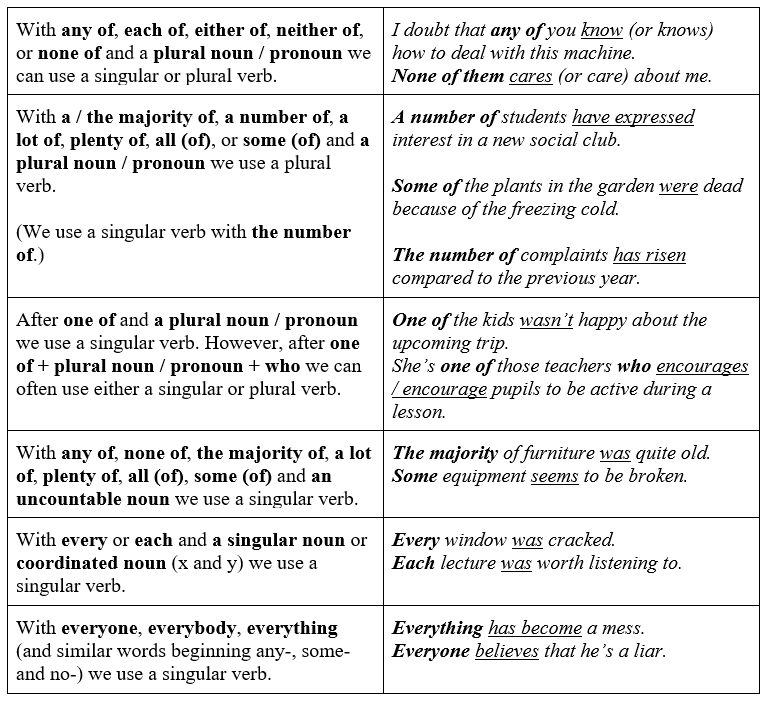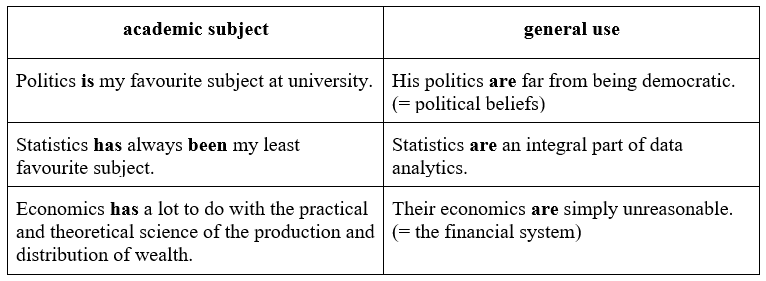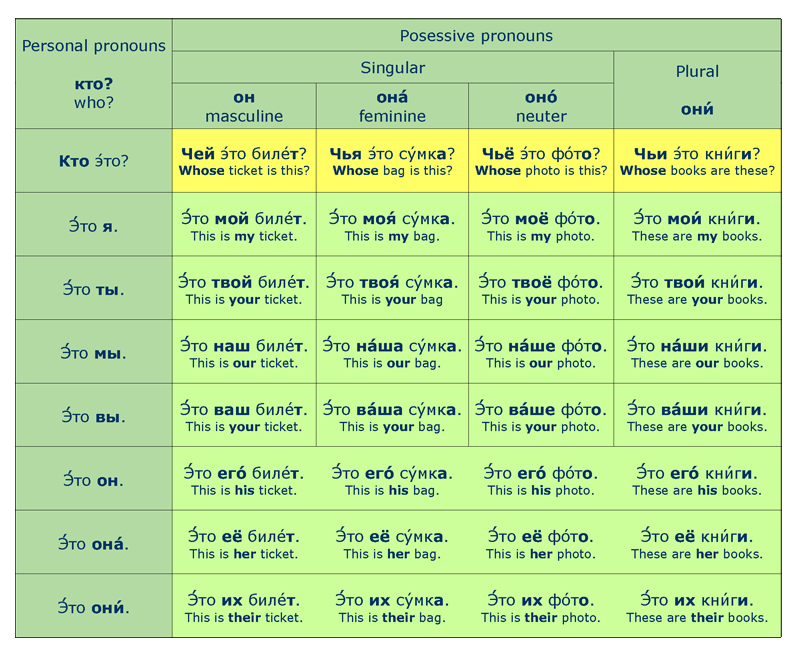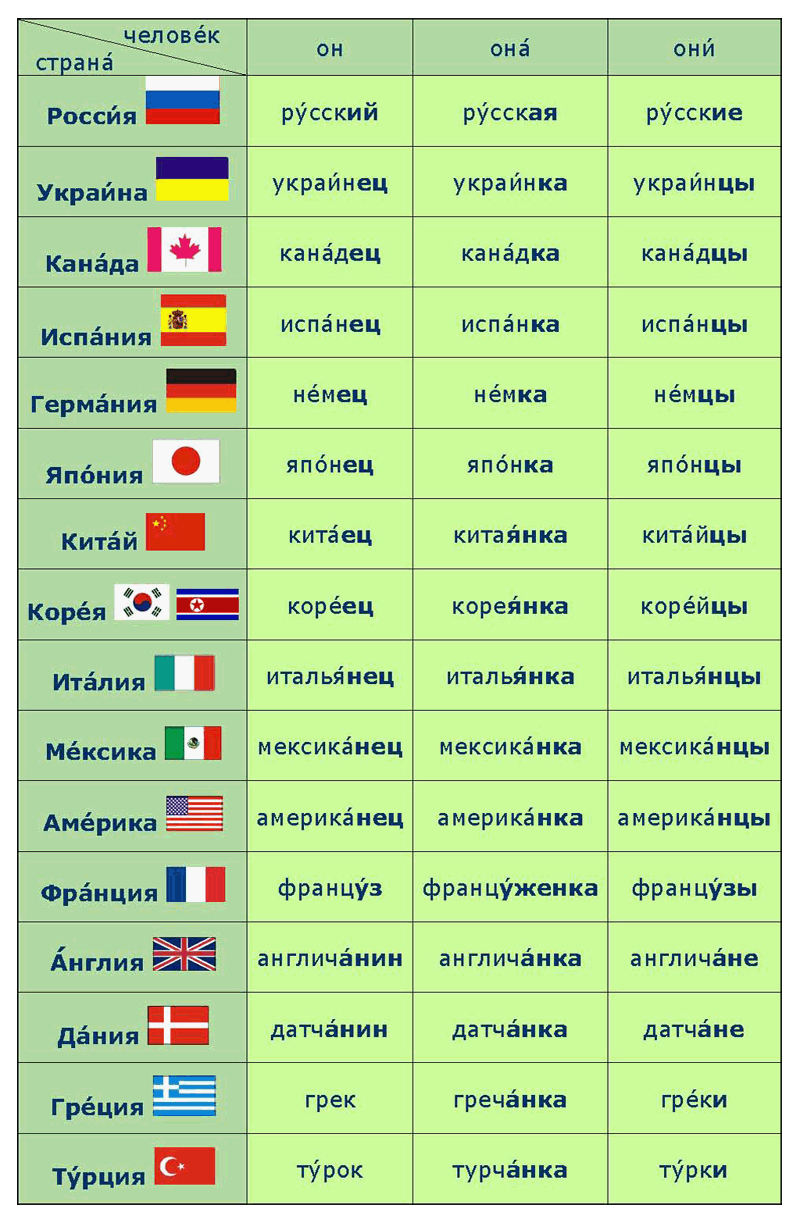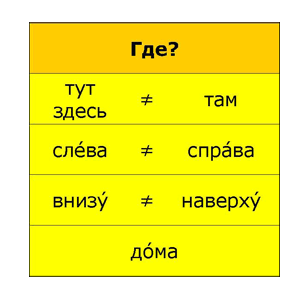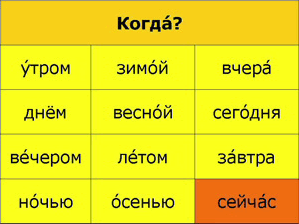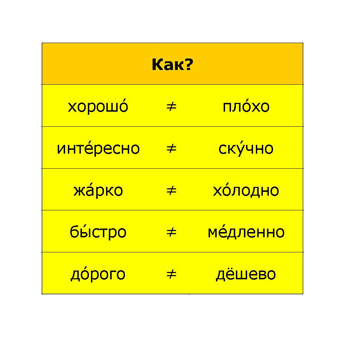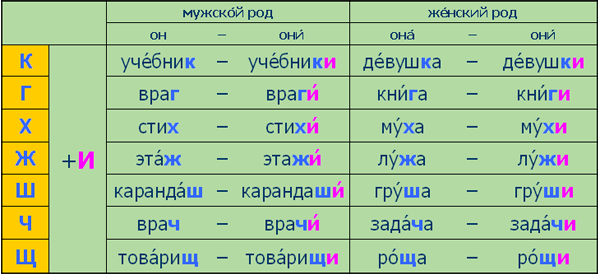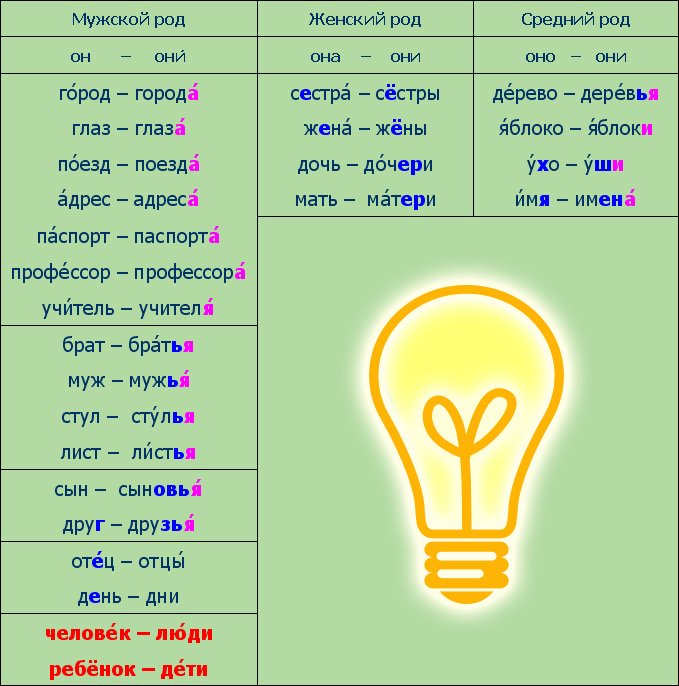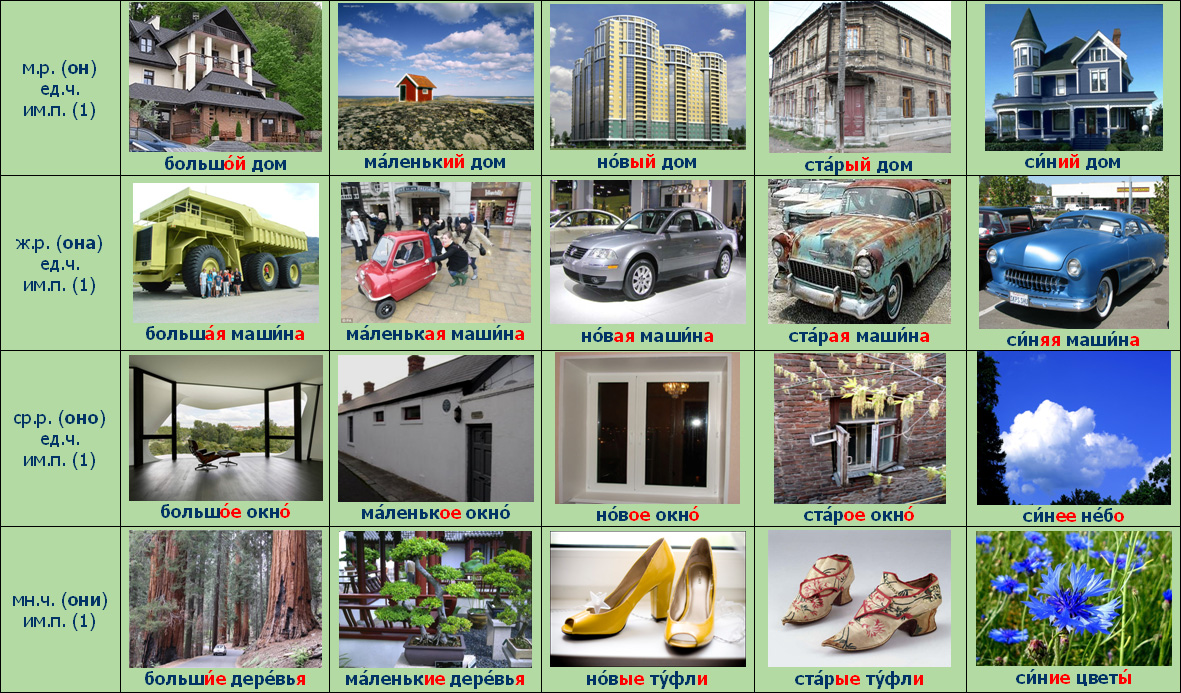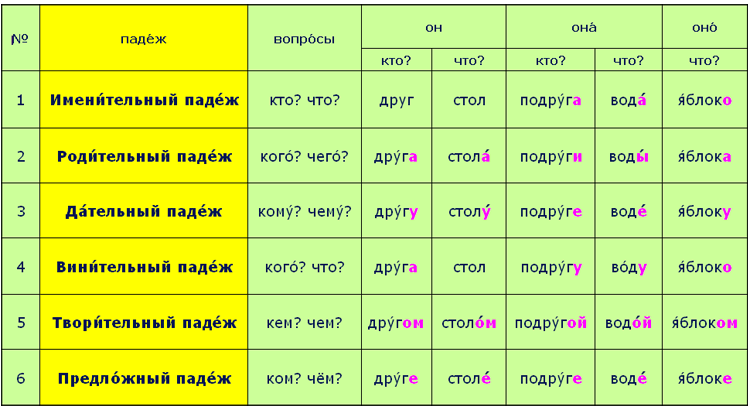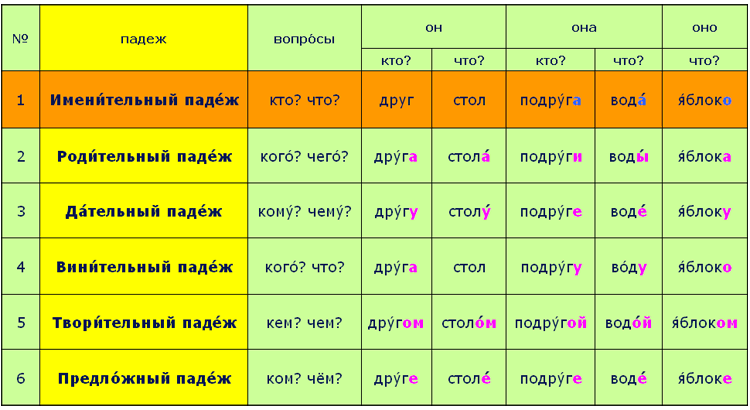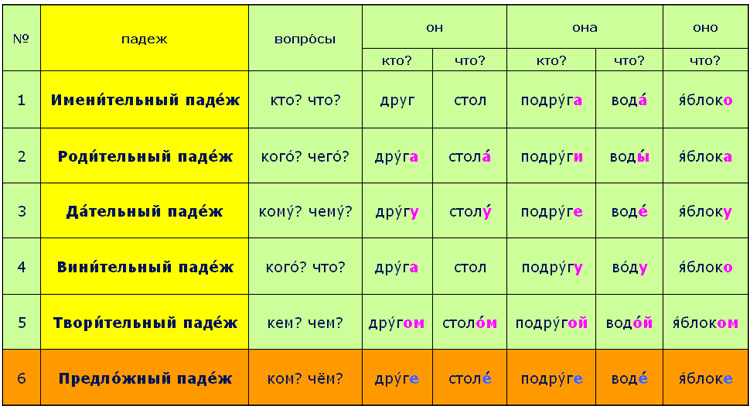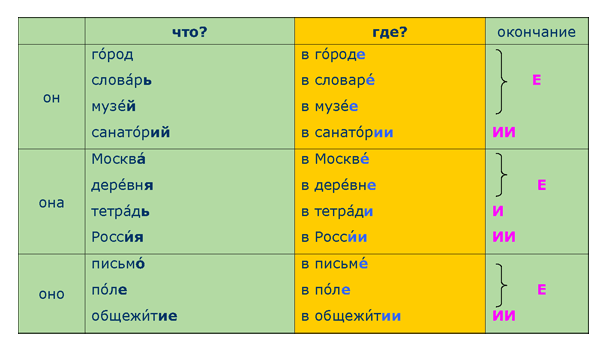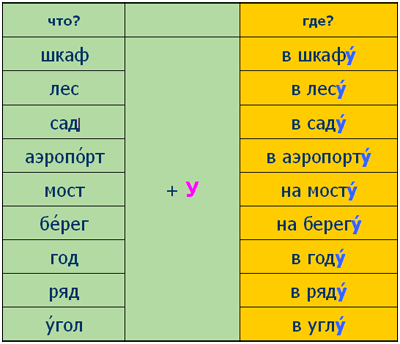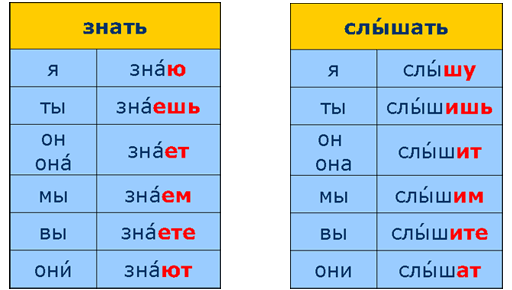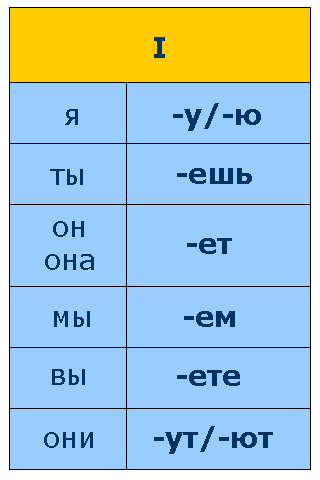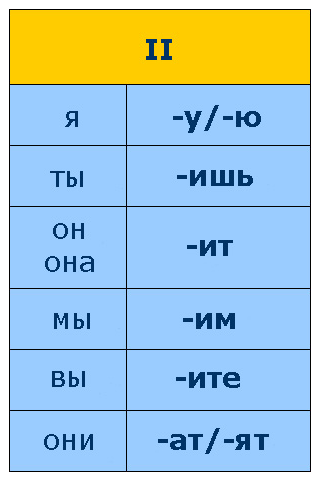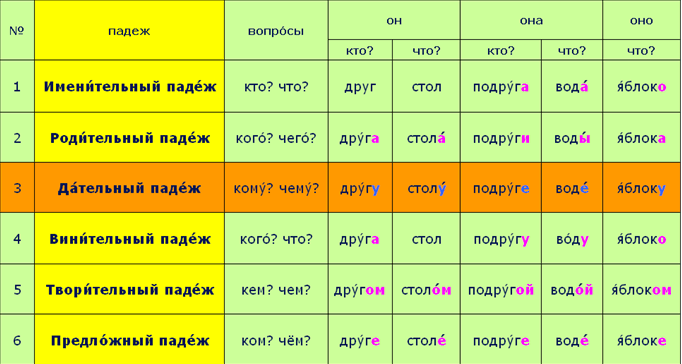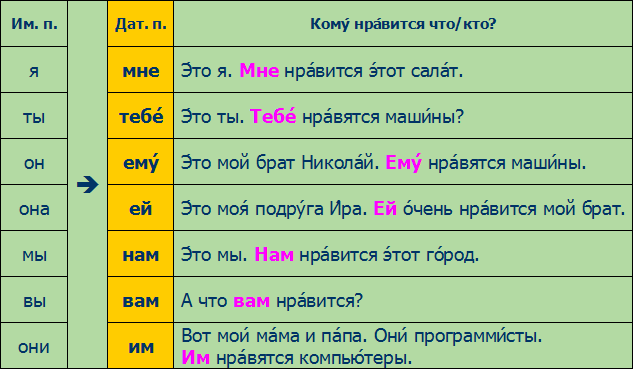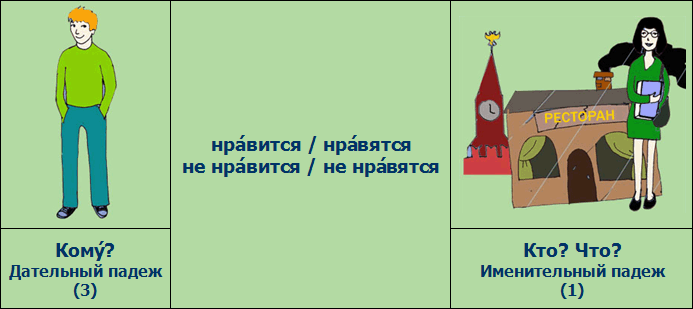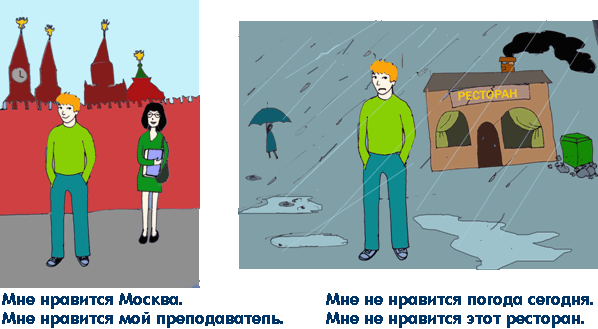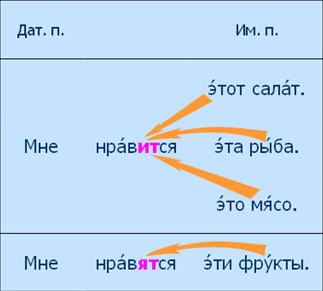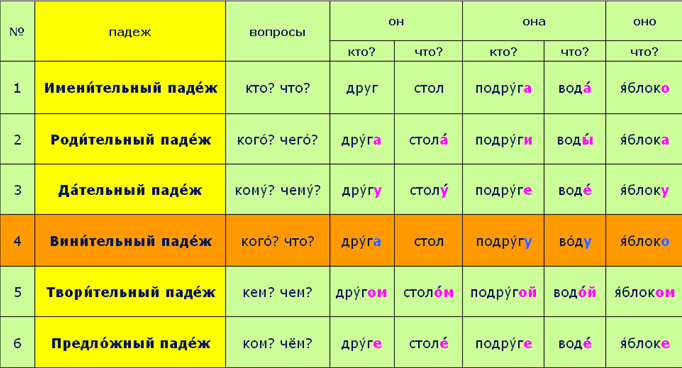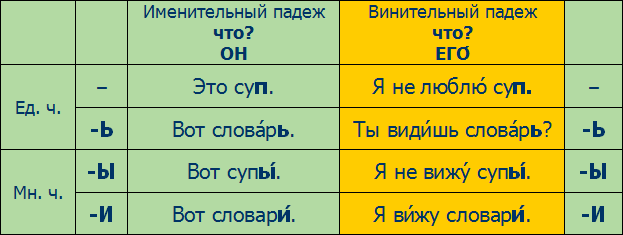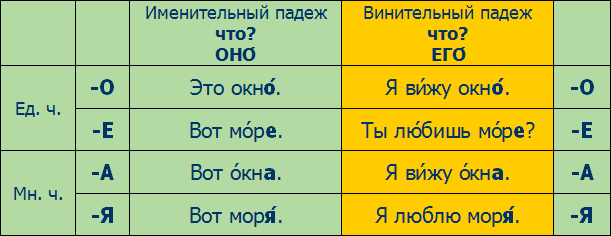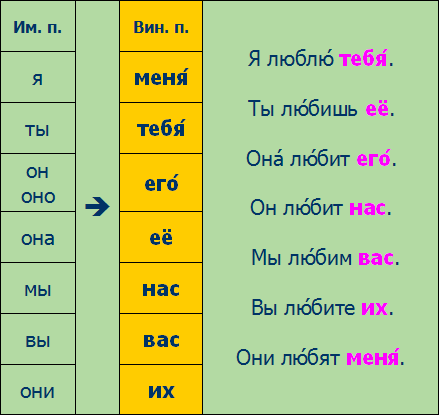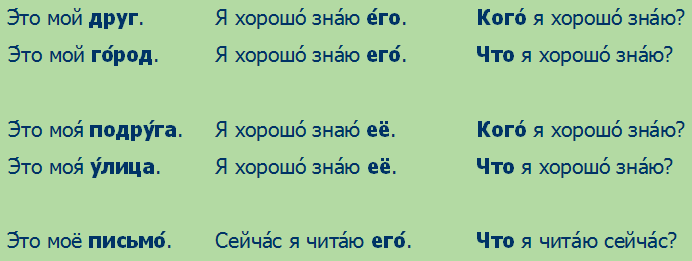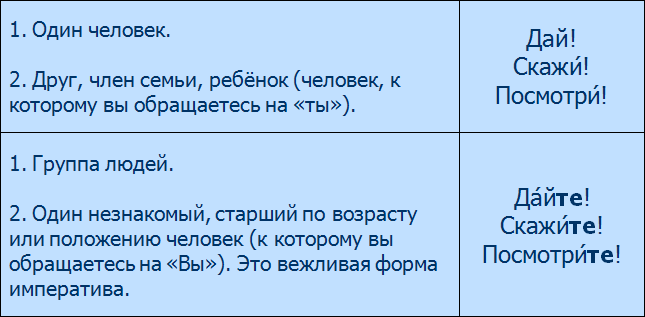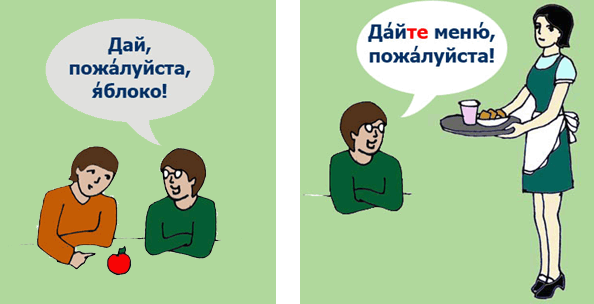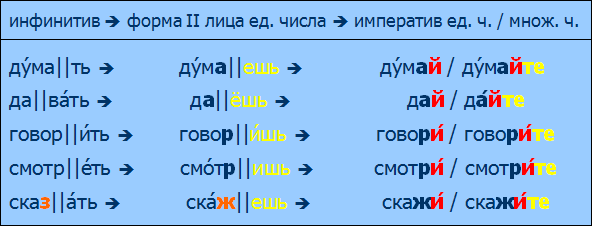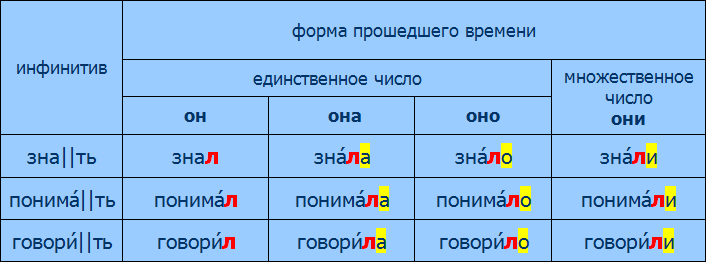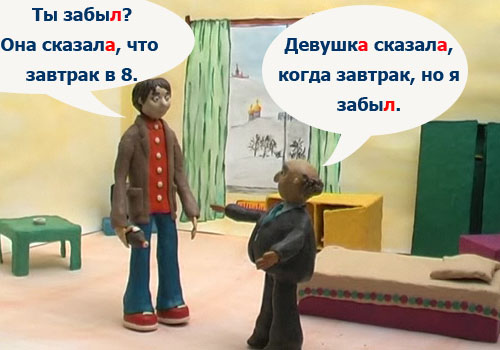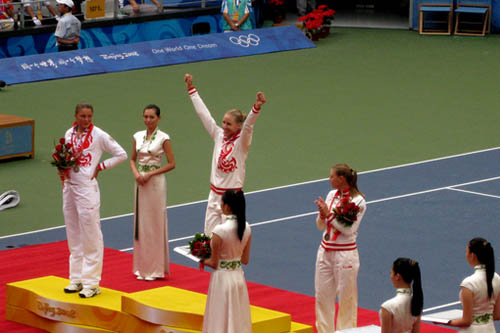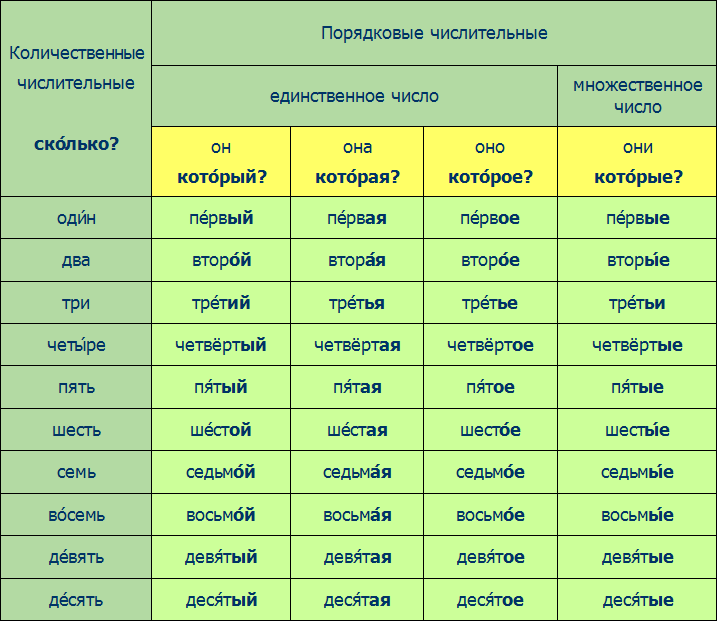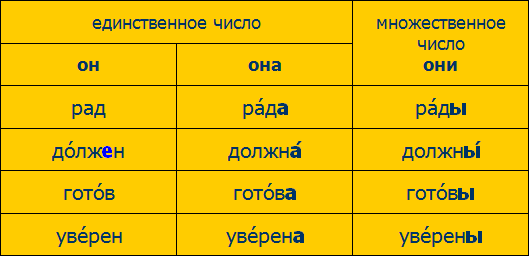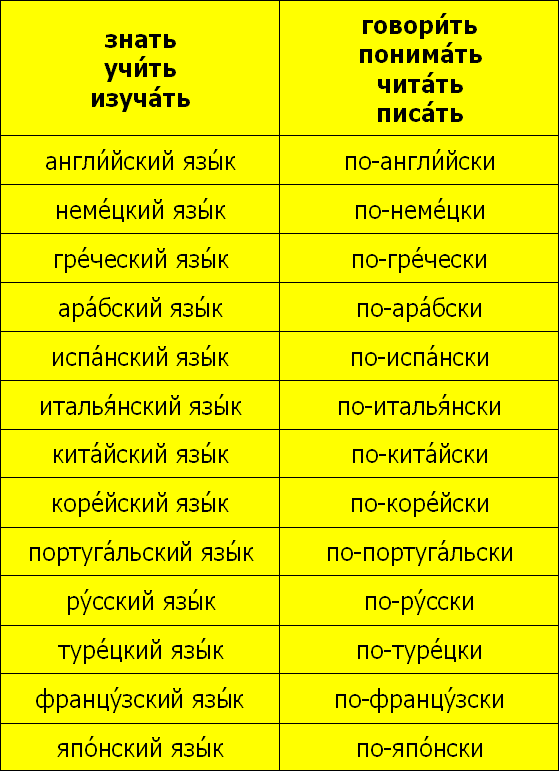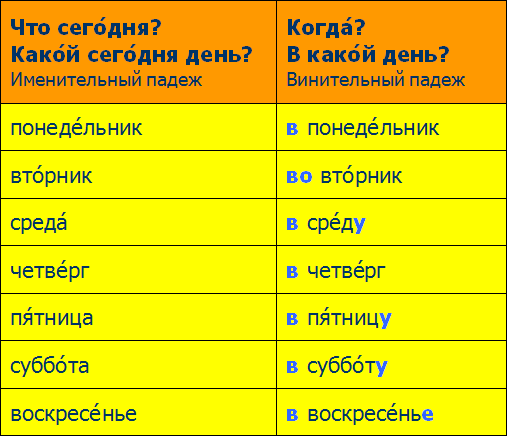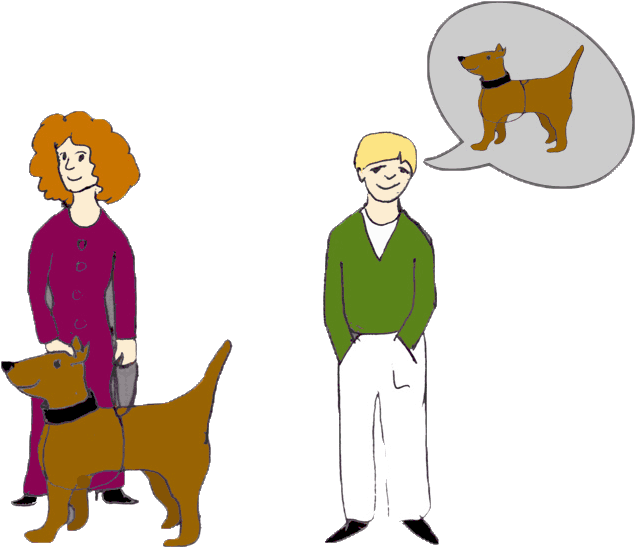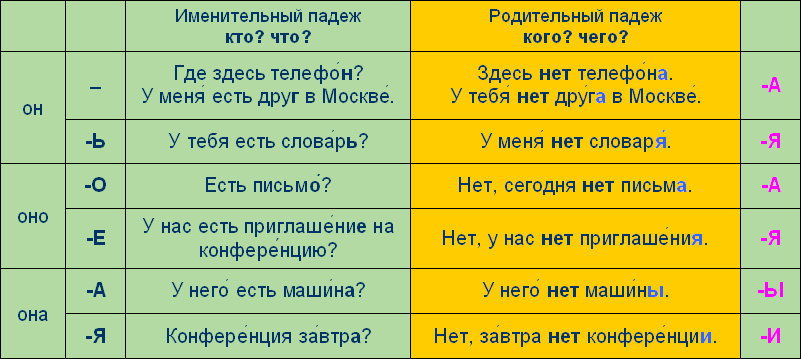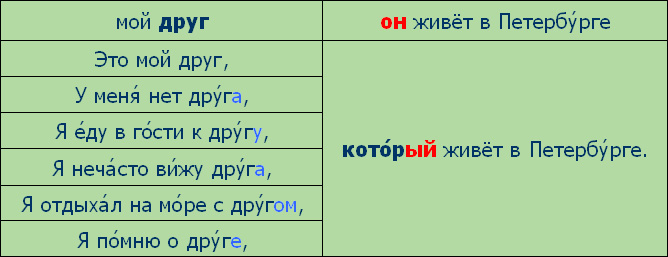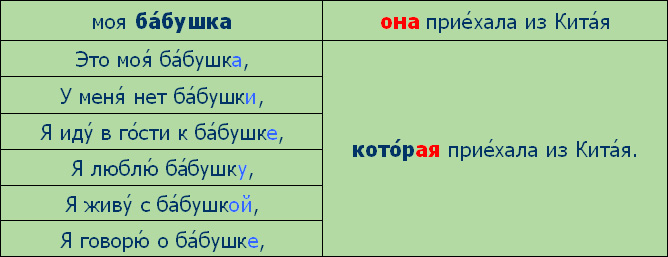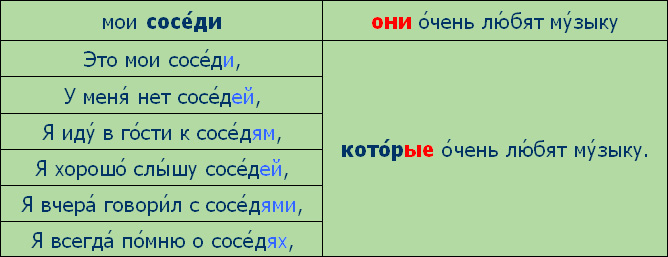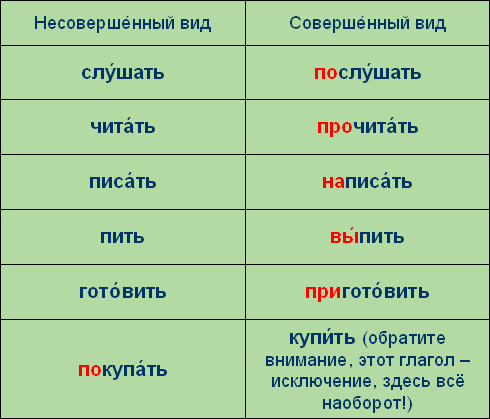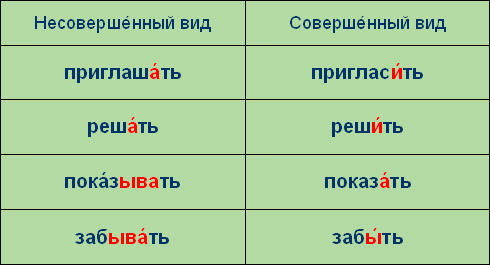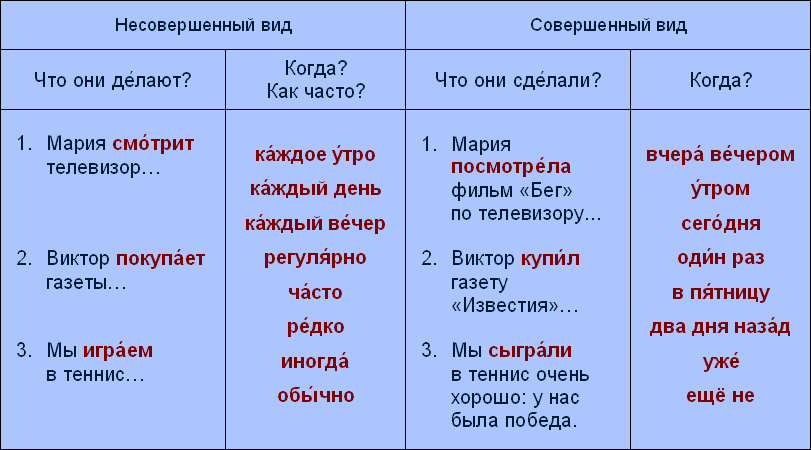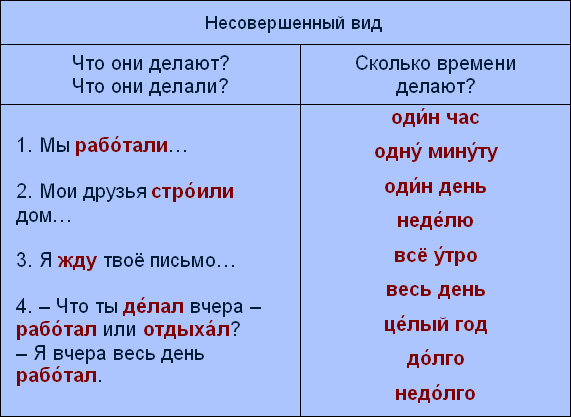Many English words have a verb form and a noun form. This can be confusing. The verb form and the noun form are sometimes pronounced differently, which can be even more confusing!
I wrote this blog post to help ESL students use these words with confidence.
Table of Contents
- Verb or Noun Grammar
- Pronunciation
- 72 verb and noun pair examples with audio
- 150 One-syllable Verb and Noun pairs
- 20 Nouns that you didn’t know had a verb form
- Free 14-page PDF Download
Verb or Noun? – Grammar
Let’s start by answering a basic question. What’s the difference between a noun and a verb?
A noun is a person, place, or thing.
A verb expresses an action or existence.
“A dog is running in the park.” – A DOG (thing) is running (action) in the PARK (place).
A basic English sentence will have this pattern. Subject – Verb – Object. The subject and object in a sentence will be nouns. DOG (Subject) is running (Verb) in the PARK (Object).
How can I tell a noun from a verb?
The sentence example above is very basic. Natural English sentences will use clauses and conjunctions to tell longer stories in a single sentence. Here is a simple way to tell if a word is a noun or a verb in a longer sentence.
Nouns often follow an article (a, an, the) or the possessive form of a noun or pronoun. (my, his/her, its, John’s, etc.)
Verbs will follow a subject and be conjugated (changed into past, present, future, continuous tense, etc.)
Noun – Happy birthday! I bought you a present.
The noun present follows the article a.
Verb – They will present their findings tomorrow at the meeting.
The verb present follows a subject – “They” – and is conjugated in the future tense. – “will present“
If you know the correct form, you can use the correct pronunciation.
Are all verb and noun pairs pronounced differently?
One-syllable Verb and Noun pairs
Many noun and verb pairs have only one syllable so there is no change in word stress between the verb and the noun. They all sound the same with a few exceptions. (You can find the exceptions in the one-syllable verb and noun list at the bottom of this post.)
Example:
list
noun – a series of names, items, figures, etc., especially when they are written or printed
“I wrote a shopping list this morning.”
verb – to write a list of things in a particular order
“I listed everything I need for my trip.”
Two-syllable Verb and Noun pairs
When noun and verb pairs are two syllables we pronounce them correctly by focusing on the syllable stress. English 2-syllable nouns will put stress on the first syllable. CONduct.
2-syllable verbs will put stress on the second syllable. conDUCT.
Example:
conduct
noun – CONduct – a person’s behavior in a particular place or in a particular situation
“Our school has a strict code of conduct.”
verb – conDUCT – to organize and/or do a particular activity
“My university will conduct a survey on Friday.”
Three-syllable Verb and Noun pairs
There are a few cases where the verb and noun pair is three syllables and ends with the letters -ATE. For these examples, the sound of the last letters will change, not the stress. The stress will still be on the third syllable.
Example:
associate
noun – asso-she-IT ~ a person that you work with, do business with, or spend a lot of time with
“Peter is a business associate of my father.” (asso-she-IT)
verb – to spend time with someone, especially a person or people that someone else does not approve of
“I try not to associate with angry or negative people.” (asso-she-ATE)
Associate audio below ↓
In this post, I will also give you 36 noun/verb pair examples with over 70 natural example sentences. Each example sentence has audio to improve your English listening skills and pronunciation. You can quickly start using the correct word stress with noun/verb pairs.
Noun and Verb Pair Vocabulary LIST
Listen to the correct pronunciation with natural example sentences below. The word definitions used in this post are from Oxford learner’s dictionaries. Links to the definitions are beside each word. N for the NOUN definition and V for the VERB definition.
*Some of the words on this list have multiple definitions, you can find other meanings at the links provided. (N V)
Verb and noun pairs examples with AUDIO
associate N V
Noun – Peter is a business associate of my father. [asso・SHE・IT] Peter works with my dad.
Verb – ①I try not to associate with angry or negative people. [asso・SHE・ATE] I don’t like to spend time with negative people.
Verb – ② I like to associate new grammar with my own real experiences, it makes the grammar easier to remember. [asso・SHE・ATE] I connect new grammar to a real experience in my mind.
compound N V
Noun – They are building a large prison compound in my hometown. [COMpound] They are building a complex that will be surrounded by a wall.
Verb – Cutting the budget will not solve anything. Budget cuts will only compound our problems. [comPOUND] Reducing the budget will make things worse.
conduct N V
Noun – Our school has a strict code of conduct. [CONduct] We are told how to behave when we are at school.
Verb – My university will conduct a survey on Friday. [conDUCT] My university will organize a survey and ask the students some questions.
conflict N V
Noun – Sadly there are many conflicts in the world right now. [CONflict] Many places are having strong disagreements.
Verb – My experiences in Japan conflict with some of the stories I was told before I came. [conFLICT] The stories I was told are the opposite of my experience.
(I was told is the passive voice – learn this grammar HERE)
contest N V
Noun – I entered a break dancing contest when I was 12. [CONtest] I entered a break dancing competition when I was 12.
Verb – After Donald passed away his youngest son contested his will. [conTEST] Donald’s youngest son opposed the will because he felt it was wrong.
contract N V
Noun – I just signed a new 3-year contract with the high school where I teach English. [CONtract] I have an official 3-year agreement to work at the school.
Verb – The company was contracted to build a new 50,000-seat stadium. [conTRACT] The company has made an official agreement to build a stadium.
contrast N V
Noun – There is a big contrast between the customer service in Japan and the service I receive in Canada. [CONtrast] There is a big difference between the customer service at stores in these 2 countries.
Verb – I like to contrast American movies with Japanese movies. The style and pace are quite different. [conTRAST] I like to compare the 2 movie styles and show how they are different.
I make typos sometimes when I write my blog content. I often use voice typing which can also cause simple Grammar errors in my blog post document.
I use Grammarly to help me catch these mistakes. It saves me a lot of time! It can help your English writing too. Get Grammarly for free.
decrease N V
Noun – There was a decrease in school applications last year. [DEcrease] The number of applications was reduced.
Verb – The number of students at my school decreased last year. [deCREASE] The student population became smaller.
delegate N V
Noun – The meeting was attended by delegates from over 100 countries. [del・ah・GIT] People who were chosen to represent their countries attended the meeting.
Verb – I’m so busy at work. I think I will delegate some tasks to my assistant. [del・ah・GATE] I will give part of my work to my assistant.
desert N V
Noun – If you travel in the desert you should bring lots of water. [DEzert] If you travel in a dry area with little water, you should bring your own.
(Be careful of the noun dessert. It is spelled with two ‘S’s.)
– I think I’ll have cheesecake for dessert.
Dessert vs Desert – Pronounce these words CORRECTLY(Audio)
Verb – I was left in the mall by myself. My friends deserted me. [deZERT] My friends left me by myself in the mall.
detail N V
Noun – Édouard Manet’s paintings are beautiful, he pays attention to every detail. [DEtail] Manet pays attention to even the small points or features in his paintings.
Verb – This brochure details all the features of the car. [deTAIL] This brochure gives a list of facts and information about this car.
discount N V
Noun – If I buy one jacket I can get a 30% discount on a second jacket. [DIScount] If I buy 2 jackets there will be a 30% price reduction on the second one.
Verb – Stores usually discount their clothes at the end of the season. [disCOUNT] They take some money off the usual price.
escort N V
Noun – When leaders travel to other countries they often have police escorts. [EScort] World leaders have local police travel with them to protect them.
Verb – It’s getting dark, please let me escort you home. [esCORT] Let me take you home so you are not alone, to make sure you are safe.
export N V
Noun – Lumber is one of Canada’s main exports. [EXport] Lumber is one of the main goods that it sells to other countries.
Verb – Canada exports lots of lumber and oil to the United States. [exPORT] Canada sells some of its resources to America.
impact N V
Noun – Many people are climbing Mt. Everest and this has had a serious impact on the environment of Nepal. [IMpact] Many tourists come to climb the mountain. This has had a powerful effect on the environment.
Verb – The value of the Canadian dollar impacts businesses that export goods. [imPACT] The value of the Canadian dollar affects companies that sell goods to other countries.
import N V
Noun – This store sells lots of exotic furniture and other imports from overseas. [IMport] The store sells furniture and other things that came from other countries.
Verb – I was surprised to learn that America imports more than half of its oil from Canada! [imPORT] More than half of The United States’ oil is brought in from Canada.
increase N V
Noun – There has been an increase in blood donations at the clinic. People want to help after the hurricane. [INcrease] There was a rise in the number of people who donated blood after the hurricane.
Verb – I really want to find a girlfriend. If I get out more and try new things I will increase my chances of meeting a nice girl. [inCREASE] If I go out and meet more people the chance that I will meet a nice girl becomes greater.
insert N V
Noun – I bought some inserts for my shoes. They’re soft and make it easier to walk. [INsert] I bought a thin cushion to put inside my shoes.
Verb – I inserted $2.00 in the vending machine but it didn’t give me my drink! [inSERT] I put $2.00 into the money slot of the vending machine but I didn’t get a drink.
insult N V
Noun – Mike said my suit looks cheap. That’s an insult! [INsult] Mike made a remark that was trying to offend me.
Verb – Mike insulted my suit this morning. What a jerk. [inSULT] Mike’s comment about my suit offended me.
invite N V
Noun – I didn’t get an invite to Craig’s party. Maybe he is mad at me. [INvite] I didn’t get a spoken or written request to come to Craig’s party.
Verb – Craig invited many people to his party. But not me. [inVITE] Craig asked many people to come to his party, but he didn’t ask me.
misprint N V
Noun – The ad in the newspaper says the shoes are $1000.00, but I think it’s a misprint. [MISprint] There is a mistake in the (printed) advertisement.
Verb – The printing company misprinted the ad. [misPRINT] Th company printed the ad incorrectly.
object N V ~ there are 4 uses of the NOUN object. Click the N to see them all!
Noun – A basic English sentence has a subject, a verb, and an object. [OBject] One use for the noun object is the thing in a sentence (also a noun) that is affected by the verb of the sentence.
Verb – I object to your question, it’s not relevant to the discussion. [obJECT] I disagree with your question, it is not related to what we are talking about.
permit N V
Noun – You can’t camp here without a permit from the park. [PERmit] You need an official document to be allowed to camp here.
Verb – The park rangers don’t permit fires here. [perMIT] Fires are not allowed in the forest.
present N V
Noun – Happy birthday! I bought you a present! [PREsent] I bought a gift for you.
Verb – They will present their findings tomorrow at the meeting. [preSENT] The company will show us what they found for us to consider.
produce N V
Noun – It’s better to buy local produce. Imported produce is not as fresh. [PROduce] It is better to buy fruits and vegetables grown on farms close to where you live.
Verb – Our goal is to produce more solar batteries than any other company in the area. [proDUCE] Our goal is to make more solar batteries than anyone else in the area.
project N V
Noun – I’m working on a project for school. It’s about renewable energy. [PROject] I am making a piece of work involving the careful study of renewable energy.
Verb – Unemployment is projected to fall next year. That’s good news. [proJECT] The number of unemployed people is expected to drop next year.
protest N V
Noun – There was a large protest in front of the government office. [PROtest] People gathered in a group to express their strong disagreement with the government.
Verb – My class protested loudly when the teacher gave us 6 pages of summer homework. [proTEST] My class told the teacher that they don’t like the summer homework that he gave us.
rebel N V
Noun – James Dean was a popular actor in the 1950s. He had the image of a rebel. [REbel] The characters he played didn’t like rules or authority.
Verb – Teenagers often rebel against their parents. [reBEL] Teenagers often fight against their parents’ rules.
refund N V
Noun – The rain shoes I bought leaked! I took them back to the store and demanded a refund. [REfund] I strongly asked for the money back that I paid for the rain shoes. I brought the leaky shoes back to the store.
Verb – The store apologized and refunded my money. [reFUND] The store returned the money I paid for the rain shoes.
reject N V
Noun – The rain shoes were rejects and shouldn’t have been at the store. [REject] The shoes couldn’t be used and should not have been sold.
Verb – My idea for the new school mascot was rejected by the students. [reJECT] My idea was not accepted.
subject N V
Noun – A basic English sentence has a subject, a verb, and an object. [SUBject] In English grammar a subject is a noun, noun phrase, or pronoun representing the person or thing that performs the action of the verb, about which something is stated, or, in a passive sentence, that is affected by the action of the verb.
Verb – At karaoke last night I subjected everyone to my terrible singing. [subJECT] People were forced to listen to my terrible singing.
survey N V
Noun – My university will conduct a survey on Friday. They want to know how most students get to school. [SURvey] They did an investigation of how students get to school by asking questions.
Verb – The government surveyed the land so they could make a map of the area. [surVEY] The government looked at the land carefully to get an impression of it.
update N V
Noun – Will it rain tomorrow? I’ll check the weather app on my smartphone for an update. [UPdate] I will check my weather app for the most recent information about the weather.
Verb – I have to update the software on my smartphone. I hope it makes my phone faster. [upDATE] I have to make my software more modern by getting the newest version.
upgrade N V
Noun – On my flight to Canada I was given an upgrade to first-class. [UPgrade] I was given a seat of better quality.
Verb – The airline upgraded me to first-class, [upGRADE] The airline moved me to a better seat.
upset N V
Noun – No one thought we would win the game because the other team was too strong, but we beat them easily. It was a total upset! [UPset] We beat the team that was expected to beat us.
Verb – Brenda has been crying all morning. I think something upset her. [upSET] Something happened to Brenda to make her unhappy.
One-syllable Verb and Noun pairs – List
One-syllable words rarely change sounds between the verb and noun forms, but there are a few exceptions. Below is a list of 150 common one-syllable Verb and Noun pairs, 4 word pairs with different pronunciation, and 23 uncommon word pairs that you probably didn’t know.
- The noun and verb forms are often related in meaning. *For example ACHE and JUICE.
- There are some examples where the meaning is totally different. The only thing that is the same is the spelling. *For example BOWL and FLY.
This is not a complete list, there are many one-syllable verb and noun pairs. I tried to include the most common words in this list with a verb and a noun form.
- ache
- act
- age
- air
- back
- bat
- belt
- bet
- bite
- bowl
- call
- block
- book
- box
- brush
- buzz
- dance
- dare
- dip
- dot
- drive
- drum
- dye
- end
- face
- fall
- fan
- feast
- fence
- fight
- file
- fire
- fish
- flame
- flash
- flow
- fly
- fool
- frame
- front
- grid
- glaze
- glow
- grill
- grow
- growl
- grunt
- guard
- guess
- hail
- hand
- harm
- help
- hit
- hope
- hug
- itch
- jam
- judge
- juice
- jump
- kick
- kiss
- lace
- lap
- laugh
- lie
- limp
- link
- list
- look
- love
- mark
- match
- milk
- mop
- nail
- nap
- need
- nest
- nurse
- oil
- ooze
- pain
- paint
- park
- play
- pat
- pen
- pet
- pick
- pin
- pitch
- plan
- plug
- pose
- press
- price
- punch
- quack
- quilt
- quote
- race
- rain
- raise
- rat
- rise
- rock
- rope
- run
- rust
- rest
- sail
- saw
- scale
- set
- shave
- shop
- show
- ship
- sign
- ski
- sleep
- smoke
- snow
- spill
- spray
- spring
- stamp
- stand
- strike
- string
- sweat
- tack
- talk
- tax
- team
- test
- tie
- tip
- toast
- train
- trap
- trip
- view
- visit
- vote
- walk
- work
- wrap
- yawn
- zone
Thanks to https://www.linguasorb.com/ for help making this list.
Four one-syllable Verb and Noun pairs with different pronunciations
use N V
Noun – In Tokyo, I have no use for a car. The public transportation is awesome. [YOU•S] For me a car has no purpose in Tokyo. I don’t need one because public transportation is very convenient.
Verb – If I need a car I can use my friend Kentaro’s, he said I can borrow it anytime. [YUUZ] I can do something {in this case DRIVE my friend Kentaro’s car} anytime. (Learn how to use the verbs LEND and BORROW HERE)
house N V
Noun – I just bought a new house. [HAUS] I just bought a new building to live in.
Verb – People whose homes were flooded were temporarily housed in community centers. [HOWZ] People whose homes were affected by the flood were given a place to live.
lead N V
Noun – Exposure to lead can make you sick. [LED] Lead is a chemical element and a heavy grey metal.
Verb – We hired a tour guide to lead us around Singapore. [LEED] A tour guide showed us around Singapore.
wind N V
Noun – The wind was strong today. It was perfect for sailing. [WIN・D] The air was moving quickly today.
Verb – I have to wind my watch all the time. It’s a pain. [WINE・D] I have to turn the small gear on the side of my watch to make it work.
Noun and Verb pair 14-page PDF E-guide
Download your printable PDF E-guide below. (It’s FREE!)↓
Find more helpful blog posts below.
- How to use Adjectives as Nouns (20 examples, PDF + video)January 30, 2023
- What Are Possessive Nouns? (43 Examples, Video, PDF Guide)January 4, 2023
- 3 Adverbs of Probability – Definitely, Probably, and MaybeNovember 4, 2022
- Past tense of READ and Past Participle of READ (Audio, Quiz, and PDF)October 21, 2022
- Third-Person Singular – Your best Guide (Free 24-page eBook)October 14, 2022
- Singular and Plural nouns – 50 examples (worksheet PDF)October 7, 2022
- Present Perfect Continuous Grammar Guide (w/ Audio and PDF)October 4, 2022
Приставки и суффиксы имен существительных в английском языке
Чтобы правильно выполнить задания 26 — 31 из раздела «Грамматика и лексика» на ЕГЭ по английскому языку, Вам необходимо знать наиболее употребляемые приставки и суффиксы имен существительных.
Хочу сразу сказать, статья будет длинной, поэтому наберитесь терпения и дочитайте её до конца.
Полезный совет:
Обязательно выучите все слова из этой статьи, так как они подобраны из реальных заданий прошлых лет, которые были предложены к выполнению на ЕГЭ по английскому языку.
Работайте отдельно с каждым блоком, прописывая слова, даже если они вам кажутся хорошо знакомыми.
Помните, что в заданиях 26 — 31 наряду с вашими умениями образовывать новые слова при помощи различных аффиксов, оцениваются ваши орфографические навыки!
1) Суффикс – er
Модель образования: Verb + er = Noun
При присоединении суффикса – er к глаголу или существительному, образуется имя существительное, обозначающее профессию, род занятий человека, а также названия некоторых предметов:
To write — writer, to sing — singer, to drive — driver, to teach — teacher, to examine — examiner, to learn — learner, to build — builder, to loaf (лодырничать) — loafer (лодырь)
Trumpet — trumpeter (трубач), bank — banker (банкир), finance — financier (финансист)
Обратите внимание
To contain — container (контейнер), to dust — duster (тряпка для вытирания пыли), to grate — grater (терка), to mix — mixer (миксер), to shake — shaker (шейкер), to blend — blender (блендер), to open — opener (консервный нож)
Mince (фарш) — mincer (мясорубка)
Исключение: to lie (лгать) — LIAR (лгун / лгунья)
2) Суффикс – or
Модель образования: Verb + or = Noun
При присоединении суффикса – or к глаголу образуется имя существительное, обозначающее профессию, род занятий человека (это преимущественно существительные имеющие латинское и французское происхождение):
To act — actor (актер), to advise — advisor /–er (советник, консультант), to animate — animator (аниматор), to conduct — conductor (проводник, дирижер), to create — creator (создатель), to decorate — decorator (декоратор, маляр, оклейщик обоев), to direct — director (директор, режиссер), to educate — educator (педагог), to illustrate — illustrator (иллюстратор), to invent — inventor (изобретатель), to invest — investor (инвестор, вкладчик), to instruct — instructor (инструктор), to translate — translator (переводчик), to sail — sailor (моряк), to visit — visitor (посетитель), to conquer — coqueror (завоеватель)
Вот еще несколько существительных с суффиксом –or, которые следует запомнить:
doctor, professor, sculptor, sponsor, ancestor (предок), tutor, mentor (наставник)
3) Суффикс — ist
Модель образования: Noun + ist = Noun
При присоединении суффикса -ist к существительному образуется имя существительное, обозначающее профессию, род занятий человека:
art — artist (художник), cello — cellist (виолончелист), chemistry — chemist (химик, аптекарь), drama — dramatist (драматург), ecology — ecologist (эколог), economics — economist (экономист), geology — geologist (геолог), genetics — geneticist (генетик), guitar — guitarist (гитарист), journal — journalist (журналист), medal — medalist (медалист), meteorology — meteorologist (метеоролог), optimism — optimist (оптимист), pessimism — pessimist (пессимист), phylology — phylologist (филолог), physics — physicist (физик), piano — pianist (пианист), speciality — specialist (специалист), science — scientist (ученый), terror — terrorist (террорист), zoology — zoologist (зоолог)
4) Суффикс – ment
Модель образования: Verb + ment = Noun
При присоединении к глаголу суффикса –ment образуется существительное, которое обозначает действие, процесс, средство или инструмент:
To agree — agreement (соглашение)
To arrange — arrangement (приведение в порядок, договоренность)
To assess — assessment (оценивание)
To advertise — advertisement (реклама)
To amuse — amusement (развлечение, забава)
To announce — announcement (объявление)
To appoint — appointment (назначение на должность)
To achieve — achievement (достижение)
To develop — development (развитие)
Важно
To entertain — entertainment (прием гостей, развлечение)
To equip — equipment (оборудование)
To establish — establishment (учреждение, заведение)
To excite — excitement (волнение, возбуждение)
To govern — government (правительство)
To punish — punishment (наказание)
To require — requirement (требование, потребность)
To state — statement (утверждение)
To settle — settlement (населенный пункт)
5) Суффикс – ness
Модель образования: Adjective + ness = Noun
При присоединении к прилагательному суффикса – ness образуется существительное, которое обозначает состояние или качество, выраженное прилагательным, от которого оно образовано:
Aware – awareness (сознание) Bald – baldness (облысение)
Bright – brightness (яркость) Careless – carelessness (небрежность)
Dark – darkness (темнота) Deaf – deafness (глухота)
Good – goodness (доброта) Great – greatness (величие)
Fair – fairness (справедливость) Foolish – foolishness (глупость)
Friendly – friendliness (дружелюбие) Happy – happiness (счастье)
Совет
Ill – illness (болезнь) Kind – kindness (доброта)
Lonely – loneliness (одиночество) Lazy – laziness (лень)
Mad – madness (безумие) Mean – meanness (подлость, скупость)
Quick – quickness (быстрота, сообразительность) Quiet – quietness (тишина)
Ready – readiness (готовность) Rich – richness (богатство)
Ripe – ripeness (спелость) Rude – rudeness (грубость)
Rough – roughness (неотесанность) Sad – sadness (грусть, тоска)
Sharp – sharpness (резкость) Serious – seriousness (серьезность)
Stuffy – stuffiness (духота) Tidy – tidiness (опрятность)
Обратите внимание
Weak – weakness (слабость) Wicked – wickedness (злой поступок)
Ugly – ugliness (уродство)
ВНИМАНИЕ! Если прилагательное оканчивается на согласную + y, то y меняется на i. Например: lonely + ness = loneliness. (Помните, что в разделе «Грамматика и лексика» при оценивании учитываются и орфографические ошибки!)
6) Суффикс – ship
Модель образования: Noun + ship = Noun
Суффикс — ship используется для образования существительных, которые имеют абстрактное или собирательное значение:
— указание на сообщество людей, которых объединяет какой-либо вид деятельности:
Membership – круг членов одной организации, Readership – круг читателей, Listenership – читательская аудитория, Partnership – партнерство
— указание на звание, должность человека, или его общественное положение:
Ambassadorship – полномочия посла, Chairmanship – председательство, Chancellorship – канцлерство, Clerkship – должность секретаря, Directorship – директорство, руководство, Professorship – профессорство, Captainship — капитанство, Statesmanship – управление государственными делами, Stewardship – должность управляющего, Apprenticeship – период обучения, ученичество
— указывает на абстрактные понятия:
Citizenship – гражданство, Censorship – цензура, Authorship – авторство, Ownership – владение,собственность, Scholarship – стипендия, эрудиция, Sponsorship – спонсорство, Leadership – руководство, лидерство, Hardship — невзгоды, Township — район
— указывает на умение, мастерство, искусство:
Draftsmanship – искусство черчения, Horsemanship – искусство верховой езды, Airmanship – летное мастерство, Sportsmanship – спортивное мастерство, Craftsmanship – мастерство, тонкая работа
— указывает на отношения:
Friendship – дружба, Companionship – общение, Fellowship – товарищество, содружество, Relationship – взаимоотношения, Courtship – ухаживание
7) Суффикс — ion
Модель образования: Verb + ion = Noun
При присоединении суффикса — ion к глаголу образуются существительные, которые могут обозначать качества, свойства, состояния, процесс либо абстрактные понятия:
to add — addition (добавление), to addopt — addoption (усыновление, принятие), to attract — attraction (достопримечательность, аттракцион), to assume — assumtion (предположение), to collect — collection (коллекция), to connect — connection (связь, соединение), to anticipate — anticipation (предвидение), to invent — invention (изобретение), to qualify — qualification (квалификация), to satisfy — satisfaction (удовлетворение), to admire — admiration (восхищение), to motivate — motivation (мотивация), to reduce — reduction (сокращение), to form — formation (образование), to preserve — preservation (сохранение), to subscribe — subscription (подписка), to relax — relaxation (расслабление, отдых), to invite — invitation (приглашение), to exaggerate — exaggeration (преувеличение)
to express — expression (выражение), to expand — expansion (расширение), to permit — permission (разрешение), to possess — possession (обладание), to tense — tension (напряжение), to impress — impression (впечатление), to confuse — confusion (смущение, путаница), to conclude — conclusion (заключение, вывод), to include — inclusion (включение), to persuade — persuasion (убеждение), to decide — decision (решение)
Источник: http://smashtrash.ru/slovoobrazovanie/pristavki-i-suffiksy-imen-sushhestvite.html
Суффиксы существительных в английском языке

Прежде чем говорить о суффиксах существительных, необходимо разобраться, что такое суффикс. Под данным термином понимается значимая часть слова, которая следует сразу после корня.
Иными словами, слово – это конструктор, состоящий из нескольких элементов, которые прочно соединены между собой и при надобности легко разъединяются. Суффикс – один из этих элементов. Его можно присоединить или наоборот – отъединить от слова.
При этом конструкция «слово» не разрушается, меняется только её форма – звучание, написание и лексическое значение:
- Школа – школьник – школьница (суффиксы -ник-, -ница-);
- Friend (друг) – friendship (дружба) – friendly (дружелюбный) (суффикс –ship, -ly).
Суффикс имеет две функции. Первая – формообразующая, которая участвует в образовании новых грамматических форм: clever (умный) – cleverest (умнейший) (суффикс –est участвует в образовании превосходной степени прилагательного). Вторая – словообразующая, необходимая для образования новых однокоренных лексических единиц: to write – writer (писать – писатель).
У имени существительного, как самостоятельной части речи, есть свои суффиксы. Они способствуют образованию новых слов. В таблице “Суффиксы существительных” в английском языке представлены самые продуктивные и их общее значение:
| Суффикс | Значение | Примеры |
| -ist (-an, -ian, -ean) | Национальная принадлежность, принадлежность к политической партии, течению) | Scientist (учёный), communist (коммунист), Russian (русский), historian (историк) |
| -er (-or, -eer, -ee, -ant, -ier, -ar) | Профессия, занятие, должность | Writer (писатель), speaker (оратор), inspector (инспектор), dreamer (мечтатель), employee (служащий), engineer (инженер) |
| -ism | Принадлежность к определённому учению или политической партии | Buddhism (буддизм), fascism (фашизм), nationalism(национализм) |
| -ment (-ade) | Итог работы, результат труда | development (развитие), punishment (наказание) |
| -hood (-ship, -cy) | Определённое состояние, уровень отношений | Boyhood (отрочество), orphanhood (сиротство), friendship (дружба), infancy (младенчество) |
| -ness (-dom, -y, -ancy, -ency, -ity, -ty) | Определённое состояние или качество | Boredom (тоска), Wisdom (мудрость), darkness (темнота), prettiness (привлекательность), clarity (ясность), gaiety (весёлость) |
| -al, -ation, -sion, -tion, -ition,-ance, -ence, -ing, -age | Очевидный результат, состояние, процесс | Regulation (регулирование), attention (внимание), barrage (заграждение), shortage (нехватка) |
| -ics | Раздел науки | Mathematics (математика), physics (физика) |
| -ry, -y | Место работы, занятия или состояние | Laboratory (лаборатория), observatory (обсерватория) |
| -ty, -ity, -y | Абстрактные понятия | Authority (власть),equality (равенство), |
| -ess, -ette | Женский род | Mistress (госпожа), poetess (поэтесса) |
В английском языке много суффиксов. Не обязательно их учить наизусть. Достаточно быть внимательным и проводить параллели между словами с одинаковыми суффиксами.
Сегодня были рассмотрены самые известные и продуктивные суффиксы существительных в английском языке. Основная их функция – образование новых однокоренных слов.
Будь в числе первых на доске почета
Источник: https://obrazovaka.ru/english/suffiksy-suschestvitelnyh-v-angliyskom-yazyke.html
Образование существительных в английском языке с помощью суффиксов
Образование существительных в английском языке может происходить различными способами. В этой статье рассмотрим образование существительных в английском языке с помощью суффиксов. Суффикс в английском языке – это буква или несколько букв, которые добавляют к слову, чтобы образовать другую часть речи или другой тип слова.
Например, если добавить суффикс –ly к слову quick – быстрый (имя прилагательное в английском языке), мы получим слово quickly – быстро (наречие), если же мы добавим суффикс – еr к слову train – обучать, тренировать (глагол в английском), мы получим существительное и другой тип слова – trainer – тренер (имя существительное в английском языке).
Образование существительных в английском языке происходит от различных частей речи. Существуют группы суффиксов в английском языке, которые указывают на часть речи, к которой относится слово.
Важно
Суффиксы, которые указывают на принадлежность слова к такой части речи, как существительное:
-ation, -ion, -ness, -ship, -ity, -ism, -ist, -ence, -ment, -al, -er(-or), -hood, -ing, -th, -ant, -age, -ure(-ture, -sure), -ship, -ian, -ency, -ee, — ette, -ocracy, -ology, -phobe, -phobia, -ess, -ese
- -ation – указывает на состояние, процесс предмета. Зачастую это окончание добавляют к глаголу, чтобы образовать существительное:
inform – information (информировать – информация)
explore – exploration (исследовать – исследование)
starve – starvation (голодать, умирать от голода — голод; голодание)
She quitted those English courses because she was payed starvation wages — она уволилась с тех курсов английского языка, потому что ей платили нищенскую заработную плату
repeat – repetition (повторять – повторение)
Can you spell this English word? – Можешь сказать это английское слово по буквам?
- -ness – добавляют к прилагательному, чтобы образовать существительное:
happy – happiness (счастливый – счастье)
happiness takes no account of time — для счастливых время не существует
- Суффикс-ship в английском языке указывает на статус, состояние, свойство:
friend – friendship (друг – дружба)
director – directorship (директор — руководство, управление)
She has got a friend from Kiev – у нее есть друг из Киева
friendship cannot stand always on one side – дружба должна быть взаимной
- -ity – добавляют к прилагательному, чтобы образовать существительное в английском:
false – falsity (неправильный, ошибочный — ложность, неверность)
electric – electricity (электрический – электричество)
to lay on the electricity — подводить электричество
- -ism – добавление этого суффикса в английском языке характеризует многие верования, мнения, убеждения:
vandal – vandalism
capital — capitalism
to combat manifestations of nationalism — бороться с проявлениями национализма
- -ist – этот суффикс в английском языке присоединяют к существительным, чтобы образовать от них производные, указывающие на профессионалов, сторонников общественного или научного направления:
This pianist is going to give a concert in Kiev – у этого пианиста будет концерт в Киеве в следующем месяце
- -ence – присоединяют к глаголу или существительному, существительное указывает на состояние или процесс:
reluctant – reluctance (делающий что-либо с большой неохотой — неохота, нежелание)
intelligent — intelligence (образованный – интеллект, рассудок, разум; умственные способности)
This scientist from Kiev is a person of considerable intelligence — этот ученый из Киева — человек большого ума
- -ment — присоединяют к глаголу для образования существительных в английском языке. Данный суффикс указывает на процесс, результат:
govern – government (править, управлять – правительство)
arrange – arrangement (приводить в порядок; расставлять — приведение в порядок; расположение; классификация; систематизация; обычно меры, мероприятия, приготовления)
But personal prejudices again interposed to prevent an arrangement so desirable — но личные предубеждения снова помешали достичь столь желаемого соглашения
All the arrangements were done. Now she is ready to open her own English language courses in Kiev – все приготовления были завершены. Теперь она готова открыть свои курсы английского языка в Киеве
- -al – присоединяют к глаголу для образования существительных в английском языке:
refuse – refusal (отвергать, отказывать; отклонять — отказ, непринятие)
I could not comprehend her refusal to help me with my English language project — я не мог понять, почему она отказалась помочь мне с моим проектом по английскому языку
- -er(-or) – этот суффикс служит для образования существительных в английском языке от глаголов. Существительное с такими суффиксами указывает на человека, который выполняет действие или устройство, производящее ту или иную операцию:
play – player (играть, забавляться – игрок, участник)
read – reader (читать – читатель)
mix – mixer (смешивать – смеситель, смешивающий аппарат, миксер)
edit – editor (редактировать, готовить к печати – редактор)
drive – driver (ездить; ехать – водитель)
write – writer (писать – писатель)
He is a famous English writer – он известный английский писатель
- -hood – образует существительное, которое указывает на состояние, положение, качество:
brother – brotherhood (брат – братство)
child – childhood (ребенок – детство)
She spent her childhood in Kiev – она провела свое детство в Киеве
- -ing – с помощью этого суффикса происходит образование существительных в английском языке от глаголов:
meet – meeting (встречать – встреча)
proceed – proceeding (продолжать (говорить) — акт, действие, поступок)
I have arranged a meeting with my English teacher – я назначил встречу с моим преподавателем по английскому языку
- -th – образует существительные со значением качества:
true – truth (правдивый – правда)
deep –depth (глубокий – глубина)
health (здоровье)
He started studying language in depth after he had signed up to take a course in English in Kiev— он начал глубоко (тщательно) изучать язык после того, как записался на курсы английского языка в Киеве
- -ant – образуют существительные, которые указывают на человека или вещество:
assist – assistant (ассистировать – ассистент)
oxidant (окислитель)
He is an English teaching assistant — ассистент преподавателя английского языка
- -age – в английском языке этот суффикс присоединяют к глаголу. С его помощью образуются существительные с различными значениями:
marry – marriage (жениться, выходить замуж – женитьба)
break – breakage (ломать – поломка)
shrink – shrinkage (уменьшать, сокращать – сокращение, уменьшение)
shrinkage of fabric — усадка ткани
- -ure(-ture, -sure) – эти суффиксы служат для образования существительных в английском языке от глаголов, которые указывают на процесс:
press – pressure (давить – давление)
mix – mixture (смешивать – смешивание)
- -ship – присоединяют к существительному, которое указывает на статус, состояние, качество:
friend – friendship (друг – дружба)
leader – leadership (лидер – лидерство)
These newly opened English language courses in Kiev have taken over the leadership very quickly — эти курсы английского языка в Киеве быстро вышли в лидеры
- -ian – в английском языке существительное с таким суффиксом может указывать на национальность, звание, профессию (может выступать прилагательным):
physician (терапевт)
Italian
academician (академик)
She studied Italian at these courses in foreign languages in Kiev — она изучала итальянский язык на курсах иностранных языков в Киеве
- -ency – в английском языке существительное с такими суффиксами могут указывать на процесс, состояние. Они могут быть образованы от существительных или прилагательных:
president – presidency (президент – президентство)
independent – independency (независимый – независимость)
She has promised improvements during her presidency — она обещала добиться улучшения в период своего президентства.
- -ee – в английском языке существительные с такими суффиксами могут указывать на объект; образование существительных в английском в этом случае происходит от глаголов:
train – trainee (тренировать — практикант, стажёр)
employ – employee (нанимать на работу – наемный рабочий)
There are 200 employees working for our subsidiary in Kiev – 200 сотрудников работает в нашем дочернем предприятии в Киеве
- -ette – указывает на уменьшительное значение. Присоединяют к существительному (образование существительных в английском языке от других существительных):
kitchenette – кухонька, небольшая кухня (совмещенная с комнатой)
democracy
- -logy – указывает на принадлежность слова к науке, предмету (школьному):
Biology
Physiology
Anthropology
Geology
He spent the following year at the same Institute where he studied Biology – следующий год он провел в в том же институте, где изучал биологию
- -phobe – указывает на то, что человек является трусом, ненавистником, либо боязливым, робким человеком:
Anglophobe – англофоб (человек, который боится или ненавидит Англию)
- -phobia – в английском языке этот суффикс указывает на раздражение или страх, боязнь чего-то (фобию):
arachnophobia – боязнь пауков
pantophobia — боязнь всего
ophidiophobia – патологическая боязнь змей
claustrophobia – клаустрофобия (патологическая боязнь замкнутого пространства)
- -ess – принадлежность к женскому полу (женская особь):
lioness — львица
waitress – официантка
She worked as waitress in Kiev restaurant – она работала официанткой в ресторане Киева
- -ese – указывает на язык или национальность (может выступать прилагательным):
Chinese
Japanese
Vietnamese
I studied English and Japanese at these courses in foreign languages in Kiev – я изучал английский и китайский на этих курсах иностранных языков в Киеве
На этом заканчиваем тему образования существительных в английском языке с помощью суффиксов, а образование прилагательных, наречий и глаголов при помощи различных суффиксов мы рассмотрим в одной из следующих статей.
Источник: http://EuroEducation.com.ua/article/36-english/116-suffixes-derivation-noun-suffixes-word-formation-nouns.html
Суффиксы существительных
Большинство существительных образуются от глаголов, от прилагательных или других существительных путём присоединение к их основе соответствующих суффиксов. Как правило, суффиксы безударны, но в отдельных случаях они получают главное ударение.
Суффиксы «er, or» присоединяются к глаголам для обозначения действующих лиц.
to buy – a buyer
покупать – покупатель
to translate – a translator
переводить – переводчик
Суффикс «ee» служит для обозначения лица, на которое направлено действие. Cуффикс «ee» получает главное ударение, а второстепенное ударение падает на первый слог:
to address – an address`ee
адресовать – адресат
to trust – a trust`ee
доверять – доверенное лицо
to employ – an employ`ee
нанимать на работу – служащий
Суффикс «ian» служит для обозначения национальной принадлежности:
Russia – russian
Россия – русский
Ukraine – ukrainian
Украина – украинец
Bulgaria – bulgarian
Болгария – болгарин
Для обозначения отвлечённых существительных используются суффиксы «dom, ness, hood, ship, ment, ure, age, ion«.
Суффикс «dom» образует существительные от прилагательных и существительных:
free – freedom
свободный – свобода
king – kingdom
король – королевство
Суффиксы «ness, (ance, ence)» образуют существительные от соответствующих прилагательных:
happy – happiness
счастливый – счастье
important – importance
важный – важность
different – difference
различный – различие
Суффиксы «ship, hood» образуют существительные от других существительных:
friend – friendship
друг – дружба
leader – leadership
вождь – руководство
child – childhood
ребёнок – детство
neighbour – neighbourhood
сосед – соседство
Суффиксы «ment, ure, age» образуют существительные от глаголов:
to govern – government
управлять – правительство
to develop – development
развивать – развитие
to depart – departure
уезжать – отъезд
to press – pressure
давить – давление
to marry – marriage
выходить замуж – замужество
to pass – passage
проходить – проход
Суффиксы «ion (tion, sion, ssion)» также образуют существительные от глаголов. При этом в некоторых случаях изменяется произношение, а иногда и написание слов:
to expect – expectation
ожидать – ожидание
to produce – production
производить – продукция
to exclude – exclusion
исключать – исключение
to permit – permission
разрешать – разрешение
Источник: https://www.native-english.ru/vocabulary/word-formation-noun-suffix
Словообразование (использование префиксов и суффиксов). Видеоурок. Английский язык 5 Класс
Рис. 1. Части слова (Источник)
Приставка (prefix) – это буква или группа букв, которые добавляются к началу слова (at the beginning of the word) с целью образовать новое слово.
Prefix + Word
Пример:
Un (prefix) + do (base/root word) = undo
Re (prefix) + write (base/root word) = rewrite
Суффикс (suffix) – это буква или группа букв, которые добавляются к концу слова (at the end of the word) с целью образовать новое слово.
Word + Suffix
Пример:
Use (base/root word) + ful (suffix) = useful
Friend (base/root word) + ly (suffix) = friendly
Процесс образования новых слов с помощью префиксов (рис. 2) и суффиксов называется словообразованием. Зная значение приставок и суффиксов, всегда можно понять, какой частью речи является новое слово, и определить его значение.
Рис. 2. Приставка (Источник)
Приставки добавляются в начале слова и изменяют его значение. Однако слово остается той же частью речи, что и без приставки.
Приставки un-, im-, in-, mis-, dis- придают слову отрицательное значение, делают его противоположным по значению основному слову.
Пример:
Comfortable (удобный) – uncomfortable (неудобный)
Polite (вежливый) – impolite (невежливый)
Active (активный) – inactive (неактивный)
Приставка re- имеет значение «заново», «снова».
Пример:
Write (писать) – rewrite (переписать)
Do (делать) – redo (переделать)
Count (считать) – recount (пересчитать)
Prefixes!
Источник: https://interneturok.ru/lesson/english/5-6-klassy/unit-1/slovoobrazovanie-ispolzovanie-prefiksov-i-suffiksov
Об английском с любовью
Заглавная
О любом человеке можно рассказать многое, и для этого есть много существительных. Во-первых, любому человеку можно “приписать” профессию или род занятий. Как правило, при этом мы отталкиваемся от глагола. Если человек выполняет какое-либо действие, то значит это и есть его род занятий или профессия.
Человек живет в социуме, который имеет “слои общества”, есть дворянство, а значит и титулы, передаваемые по наследству, крестьянство, рабы. Это не профессия и не род занятий. Человек всегда имеет статус “родства”.
Например, женщина может быть матерью, женой, сестрой, свекровью, дочерью, а человек мужского пола может быть мужем, зятем, сыном, отцом, холостяком и т.д.
Суффиксы “-HOOD”, “-SHIP” и “-DOM” образуют абстрактные существительные, которые могут указывать на статус человека в обществе, но не род занятий или профессию. Суффиксы “-HOOD”, “SHIP” и “DOM” во многом похожи по смыслу, но есть и различия, поэтому давайте рассмотрим их поочередно.
Суффикс “-HOOD” пришел в английский язык с немецкого языка и часто говорит о жизни человека, когда он проходит постепенно все фазы взросления от младенца до зрелого человека. Еще суффикс “-HOOD” может указывать на качества человека, которые не относятся к его роду деятельности.
Напишу несколько примеров существительных с суффиксом “-HOOD”.
BABY = ребенок, младенец + HOOD = BABYHOOD = младенчество;
BACHELOR (1) = холостяк + HOOD = BACHELORHOOD = холостяцкая жизнь;
BACHELOR (2) = бакалавр + HOOD = BACHELORHOOD = степень бакалавра;
BROTHER = брат, собрат, коллега, земляк + HOOD = BROTHERHOOD = братство, братские, дружеские отношения, люди одной профессии;
Совет
BOY = мальчик, школьник, парень, молодой человек, сын + HOOD = BOYHOOD = отрочество;
CHILD = ребенок, дитя, чадо, сын, дочь, отпрыск, потомок + HOOD = CHILDHOOD = детство;
FALSE = ложный, ошибочный, неправильный, фальшивый, вероломный, лживый, обманчивый + HOOD = FALSEHOOD = ложь, неправда, фальшь;
GENTLE = мягкий, добрый, тихий, спокойный, кроткий, родовитый, знатный + HOOD = GENTLEHOOD = знатность, благовоспитанность, любезность;
HARDY = смелый, отважный, дерзкий, закаленный, выносливый, стойкий + HOOD = HARDIHOOD = смелость, дерзость, наглость;
GIRL = девочка, девушка + HOOD = GIRLHOOD = девичество;
KNIGHT = рыцарь, витязь + HOOD = KNIGHTHOOD = рыцарство, рыцарское достоинство; дворянство;
LIVELY = живой (при описании), оживленный, веселый + HOOD = LIVELIHOOD = средства к жизни, пропитание;
Источник: http://oose.ru/slovoobrazovanie-suffiksyi-ldquo-hood-rdquo-ldquo-ship-rdquo-ldquo-dom-rdquo-suffiksyi-obrazuyushhie-sushhestvitelnyie/
Английские приставки-суффиксы

Опубликовано: 18 июля 2016
Просмотров: 3990
Чем полезны английские приставки и суффиксы? Может, «ну их»?Зачем тратить уйму времени на их запоминание? А вот и зря вы так думаете.
Умение применить подходящую приставку, суффикс или окончание выручит во время беседы с носителем, когда под рукой нет словаря и когда он, может, даже и есть, но заглядывать в него стыдно или неудобно.
Посмотрим, как можно выкрутиться на ходу.
Английские приставки, окончания и суффиксы в примерах
Начнём со слов (а таких, поверьте, немало), которые образуют новые варианты с помощью английских приставок, суффиксов и окончаний.
EMPLOY – нанимать, предоставлять работу
Employer – наниматель (типичный случай образования рода деятельности от глагола)
Employee – служащий, работающий по найму
Employment – служба, занятие, работа по найму
Employed – имеющий работу
Unemployed – безработный
Employable – трудоспособный
Employability – трудоспособность, возможность устроиться на работу
RELY – полагаться, надеяться
Reliable – надёжный, верный
Unreliable — ненадёжный
Reliability – надёжность, достоверность
FRIEND – друг
Friendly – дружелюбный
Unfriendly – недружелюбный
Friendless – одинокий, не имеющий друзей
Friendship – дружба
RETIRE – уходить в отставку
Retired – вышедший на пенсию
Retirement – отставка
ATTRACT – притягивать, привлекать (внимание)
Attractive – привлекательный, очаровательный
Unattractive – непривлекательный
Attraction — привлекательность, достопримечательность
Attracting – притягивающий
Attracted – привлекаемый
Зачем же нужны английские приставки-суффиксы?
Как видим, английские приставки и суффиксы помогли нам создать несколько слов от одной основы. Конечно, нельзя взять какой-нибудь префикс и лепить его абсолютно везде. Важно понимать его значение. Так, например, приставка un- в английском считается отрицательной.
Обратите внимание на значение слов: unemployed, unreliable, unfriendly и unattractive. Суффикс –ment поможет вам образовать существительное от глагола, как в наших примерах: retirement и employment.
Суффикс less- в английском языке незаменим, если нужно добавить противоположное значение к глаголу или существительному: useless (бесполезный), helpless (беспомощный), childless (бездетный) и friendless.
Обратите внимание
В моих примерах выше можно найти довольно частый случай образования лица от действия: to employ – employer. Таких слов много. Мы просто не обращаем на них внимание. Возьмём хотя бы самые популярные пары:
to teach – teacher
to speak – speaker
to dance – dancer
to manage – manager
Можно пользоваться и таким суффиксом, как –ion, если потребуется существительное от глагола: to attract – attraction. Именно таким образом появилось information (от глагола to inform).
Конечно, за один раз трудно усвоить все случаи употребления английских приставок и суффиксов, но практика творит чудеса. На уроках в школе Fluent English мы обращаем внимание на происхождение слов, что упрощает процесс их запоминания и приучает использовать нужный суффикс или приставку в похожем случае.
Будем рады видеть вас на пробном уроке!
You have no rights to post comments
Источник: http://fluenglish.com/stati/studentam-na-zametku/456-anglijskie-pristavki-suffiksy.html
Словообразование имен существительных в английском языке
Словообразование имен существительных в английском языке может выполняться разными способами, и все эти случаи встречаются довольно часто.
В процессе изучения языка эта тема может доставить довольно большую сложность, так как иногда те или иные правила создания слов выглядят вполне логично, а некоторые совершенно необъяснимы с точки зрения грамматики, и их приходится просто запоминать.
О том, как правильно образовать существительное, а также обо всех возможных способах словообразования далее и пойдет речь.
Принцип конверсии
В некоторых случаях для образования существительных не требуется использовать каких-либо дополнительных морфем или присоединять разные основы друг к другу.
Иногда существительные могут просто переходить в разряд noun от глаголов, когда форма verb остается неизменной, и пропадает лишь частица to. Полученные nouns могут быть самыми разными: это и concrete, и abstract nouns.
К сожалению, далеко не все слова могут формироваться по такому принципу, и вот некоторые из них:
to look – a look (смотреть – взгляд)
to face – a face (сталкиваться – лицо)
to set – a set (устанавливать – установка)
to ride – a ride (ехать верхом – поездка)
to love – love (любить – любовь)
Как видно из примеров, у этого способа образования существительных нет ничего сложного, достаточно лишь помнить слова, которые могут употребляться по такому принципу.
Принцип словосложения
Еще один прием, с помощью которого мы обычно образуем новые формы имён существительных, называется словосложение. Примеры этого принципа встречаются в языке довольно часто: берется две грамматические основы слов, причем совершенно необязательно, чтобы обе они были от nouns, и путем их соединения образуется новая форма.
У подобного образования имен существительных есть свои плюсы, так как в процессе не нужно менять местами какие-либо части основ или добавлять дополнительные элементы, достаточно просто объединить две структуры в одну. При этом смысл полученных конструкций далеко не всегда будут схож со значениями исходных форм.
Вот как выглядит такое образование существительных в английском языке и конструкции, образованные с их помощью:
Важно
school + bag = schoolbag (портфель)
boy + friend = boyfriend (парень, друг)
lady + bird = lady-bird (божья коровка)
rail + way = railway (железная дорога)
mother + in + law = mother-in-law (теща)
passer + by = passer-by (прохожий)
Как видно из некоторых примеров, иногда только одна основа образовывает общий смысл полученного слова, а, например, предлог его дополняет.
Аффиксальное образование nouns
Словообразование существительных английского языка с помощью аффиксального способа, то путем добавления дополнительных морфем (приставок и суффиксов) – это, вероятно, наиболее распространенный способ образования слов категории nouns.
Образование с помощью приставок
Приставочный способ позволяет получить новые значения, которые могут противоположными исходному слову (stress – antistress, legality — illegality), прошлое состояние (president – ex-president), суть взаимодействия (national – international) и пр. Кроме того, помимо nouns, приставочным способом могут образовываться и новые значения прилагательных в английском языке. Префиксальный принцип весьма распространен и часто используется в лексике.
Суффиксальное образование
Образование существительных с помощью суффиксов – способ, который может встретить практически в любом тексте. Дело в том, что суффиксы в английском языке не только могут передать различные значения (–less – отсутствие, –ful – наличие чего-либо, etc.). Существуют особенные морфемы, которые типичны исключительно для nouns.
Образовать те или иные nouns суффиксальным способом – значит присоединить к другому слову (это могут быть и глагольные структуры, и прилагательные, и другие nouns) особенный суффикс, типичный именно для объекта или явления, отвечающего на вопрос кто? или что? Вот некоторые примеры того, как выглядит суффиксальный способ на практике, и какие морфемы принято использовать в таких случаях:
inform – information
free – freedom
lead – leader
race – racism
active – activity
leader – leadership
press – pressure
move – movement
dark – darkness
strong – strength
Путем суффиксального способа можно образовать много новых значений, при этом нужно запоминать суффиксы, типичные для тех или иных слов.
Отглагольные существительные
Отглагольные существительные – это слова, которые часто путают с герундием из-за идентичного окончания –ing. Для таких nouns характерно образование от глагола, как видно из самого названия.
Переводится оно, как правило, как стандартное noun, то есть при помощи ответа на вопрос кто? или что? Кроме того, с такими словами, во многом схожими с глагольными формами из-за их внешнего сходства, может употребляться и суффиксы, например –al: to read («читать») – reading («чтение»), to arrive («прибывать») – arrival («прибытие») и т. д.
Разнообразие словообразовательных принципов делает необходимым тщательное изучение всех этих принципов и запоминание специфических случаев употребления тех или иных морфем. Зная вышеописанные случаи, образовывать новые nouns станет существенно проще.
Источник: https://mcenglish.ru/lexics/slovoobrazovanie-imen-sushhestvitelnyh
Суффиксы в английском языке. Suffixes in English
Суффикс – это часть слова, которая добавляется в конце слова, иногда при этом изменяя его значение и часть речи.
Суффиксы в английских словах более распространены и гибки, чем приставки.
Как и в любом другом языке, в английском языке нужно запоминать, какой суффикс сочетается с конкретным словом. Однако, существует все же небольшой набор правил, которые стоит принять к сведению.
Существительные
Самый распространенный суффикс для существительных – это суффикс делателя.
-er/-or/-ar
Он превращает слова-действия в слова, обозначающие тех, кто делает это самое действие. То есть, говоря научным языком, из глаголов действия образуются существительные, обозначающие делателя.
teach – teacher (учить — учитель), build – builder (строить — строитель), catch – catcher (ловить — ловец), beg – beggar (просить — попрошайка), sail – sailor (плавать по морю — моряк).
Сюда же можно отнести слова: father, sister, daughter, хотя они имеют еще согласный перед –er.
Совет
Второй по распространенности – суффикс –ment. Он также превращает глаголы в существительное.
develop – development (развивать — развитие), depart – department (отделять – отделение (в магазине)), engage – engagement (увлекать, заинтересовывать – увлечение, интерес)
Для этой же цели служит суффикс – tion/-sion правда, французского происхождения.
Поэтому и слова с ним строго фиксированы и в некоторых случаях уже невозможно определить глагол, от которого они произошли.
revolve – revolution, act – action, abort – abortion, obsess — obsession; nation, fiction, aggression, complexion.
Не все глаголы становятся существительными при помощи суффиксов, иногда это происходит без всяких суффиксов, при помощи конверсии.
Чтобы образовать из прилагательного существительное, нужно употребить суффикс – ness.
busy – business (занятый, деловой – дело, занятие, бизнес)
crazy – craziness (cумашедший — сумашествие)
Как вы, вероятно, заметили, конечный y меняется на i. Иногда этот суффикс присоединяется к прилагательным, которые уже имеют суффикс (например, -y, как в предыдущих примерах, или –ful, -ish). В результате слово получается довольно-таки длинным:
fancy – воображение, причуда, fanciful – воображаемый, причудливый, fancifulness – выдумка, плод воображения, изощренность
tact – такт, tactful – тактичный, tacfulness – тактичность
self – эго, selfish – эгоистичный, selfishness – эгоизм
Прилагательные
Самый знакомый суффикс для прилагательного –
-ful
Вероятно, когда-то этот суффикс имел что-то общее со словом full – полный (full of…)
Во всяком случае, значение суффикса похоже на выражение full of:
beauty – beautiful (full of beauty): красота – красивый (исполненный красоты);
wonder – wonderful (full of wonders): чудо – чудесный (исполненный чудес);
Только не забывайте, что в отличие от full, суффикс –ful имеет только одну L.
Слова, заканчивающиеся на –y также часто (но не всегда!) являются прилагательными:
easy, busy, cozy, catchy, lucky.
Часто встречается также суффикс –able/ible
По-английски «able» — способный к чему-либо. Например, He is an able sportsman – Он способный спортсмен.
Такое же значение добавляет и суффикс –able/ible
work – workable (работать – рабочий, в рабочем состоянии)
read – readable (читать – читабельный, который можно прочитать)
eat – edible (есть — съедобный)
Не менее распространен суффикс латинский –al, который есть и в русском.
vocal – вокальный, cenral – центральный,
face – facial (лицевой, относящийся к лицу), например, facial expression
navy – naval (флот – морской, относящийся к морскому флоту), naval officer
А также –ive, который тоже есть в русском:
create – creative (создавать – способный создавать, креативный), sport – sportive (спорт — спортивный), offend – offensive (обвинять — обвинительный).
Обратите внимание
Стоит отметить –ish – суффикс, обозначающий качество, иногда употребляется как принадлежность к национальности.
child – childish (ребенок — детский), girl – girlish (девочка — девичий), Scotts – Scottish (шотландцы — шотландский), например childish behavoiur, girlish look.
а также суффикс, который делает прилагательное отрицательным –
-less
price – priceless (цена — бесценный),
help – helpless (помощь — беспомощный)
Наречия
Наречия в английском языке образуются от прилагательных при помощи суффикса –ly.
happy – happily (счастливый — счастливо), even – evenly (ровный — ровно), beautiful – beautifully (красивый — красиво), quick – quickly (быстрый — быстро).
Некоторые слова, заканчивающиеся на –ly являются прилагательными, но это скорее исключения. Например, motherly (love) – материнская.
Некоторые наречия образуются не прибавлением суффикса –ly, а являются совершенно другим словом, некоторые остаются без изменения. Такие слова-исключения надо запомнить.
Самые распостраненные:
good – хороший, well – хорошо.
bad – плохой, bad – плохо, а вот badly – очень сильно.
Глаголы
Глаголы редко присоединяют суффиксы. Глагольных суффиксов мало, и они не очень распостранены. Вот несколько примеров:
— ise/ize
emphasize – подчеркивать, делать ударение на
— fy
mystify — мистифицировать, terrify — ужасать, signify — означать
— en
light — enlighten — просвещать, broad — broaden — расширять
Источник: http://skylans.com/education/grammar/en/suffixes-in-english
способность,
inability
неспособность;
disability
нетрудоспособность
способный, умелый
unable
неспособный
disabled
искалеченный; инвалид
дать возможность
disable
делать неспособным, калечить
умело, искусно
абсурдность
абсурдный
приемлемость
приемлемый
unacceptable
неприемлемый
принимать, соглашаться
доступ
accessibility
доступность
доступный
доступно
случай, случайность
случайный
нечаянно, случайно
действие
actor
актер
actress
актриса
activity
активность
activities
деятельность
acting
представление
активный
acting
действующий, работающей
действовать
активно
достижение
достигать
привычка, приверженность, увлеченность
addict
увлеченный человек, имеющий стойкую привычку
способный вызывать привычку
увлекаться, предаваться
восхищение
восхитительный
восхищаться
восхитительно
совет
рекомендуемый
советовать
притворство, искусственность
affection
привязанность, любовь
притворный
affectionate
любящий
affective
эмоциональный
воздействовать, влиять; притворяться
соглашение, согласие
disagreement
разногласие, несогласие
соответствующий, приятный
соглашаться
disagree
не соглашаться
соответственно
агрессия
aggressor
агрессору зачинщик
агрессивный
нападать
агрессивно
цель
бесцельный
целиться, намереваться
бесцельно
то, что может быть позволено
unaffordable
то, что невозможно себе позволить
позволять себе
развлечение
приятно изумленный
amusing
забавный
развлекать, забавлять
изумленно
внешность; появление
disappearance
исчезновение
появляться
disappear
исчезать
назначение; деловая встреча
disappointment
разочарование, досада
назначенный
disappointed
огорченный
disappointing
разочаровывающий
назначать
disappoint
разочаровывать
одобрение
одобренный
approving
одобрительный
одобрять
одобрительно
соглашение; расположение
приведенный в порядок
приводить в порядок, организовывать
аргумент, довод
argumentation
аргументация
доказуемый (в споре)
argumentative
спорный, конфликтный
утверждать, спорить, ссориться
доказательно
присвоение; ассигнование
подходящий, соответствующий
inappropriate
несоответствущий, неуместный
присваивать, предназначать
соответственно, подходяще
прибытие
прибывать, приезжать
притяжение, привлекательность
привлеченный
attractive
привлекательный
привлекать
привлекательно
избежание, отмена
то, чего можно избежать
unavoidable
неизбежный
избегать
неизбежно
красота; красавица
красивый
украшать
красиво
роды
сносный, допустимый
unbearable
невыносимый
носить; терпеть
невыносимо
вера
вероятный, правдоподобный
unbelievable
невероятный
верить
выгода
выгодный
получать выгоду
зануда
boredom
скука
испытывающий скуку
boring
скучный, надоедливый
надоедать
скучно
дыхание, дуновение
breathing
дыхание
breather
короткая передышка
дышащий
breathless
бездыханный
дышать
затаив дыхание
дело
businessman
деловой мужчина
businesswoman
деловая женщина
занятой
businesslike
деловой, практичный
занимать делом
деловито, по-деловому
забота, уход
заботливый
careless
небрежный
заботиться, любить
заботливо
carelessly
небрежно
празднование
celebrity
знаменитость
знаменитый, прославленный
праздновать, прославлять
определенность
uncertainty
неопределенность, неуверенность
определенный
uncertain
неопределенный
определенно, уверенно
изменение; мелочь, сдача
изменчивый
changed
изменившийся
changeless
неизменный
unchanged
не изменившийся
менять; обменивать(ся)
неизменно
характер
характерный, типичный
характеризовать
выбор
разборчивый
выбирать
ребенок
children
дети
детский; ребяческий
очистка; устранение препятствий
четкий, ясный
очищать, расчищать
четко, ясно
облако
облачный
cloudless
безоблачный
собрание; коллекция
collector
сборщик
коллективный, совокупный
собирать; коллекционировать
колония
колониальный
колонизировать
цвет
цветной
colourless
бесцветный
multi-coloured
разноцветный
раскрашивать
комфорт; утешение
discomfort
беспокойство; неудобство
удобный, комфортабельный
uncomfortable
неудобный
утешать, успокаивать
удобно
uncomfortably
неудобно
община, общество
общественный, коллективный
сообщение
communicator
коммуникатор, переговорщик
использующийся в общении; коммуникативный
сообщать; общаться
сравнение
сравниваемый
comparative
сравнительный
сравнивать
сравнительно, относительно
соревнование; конкуренция
competitor
конкурент, соперник
соревновательный
соревноваться, конкурировать
в форме соревнования, конкуренции
завершение, окончание
законченный
complete
полный, завершенный
incomplete
неполный, назавершенный
заканчивать, завершать
полностью
поздравление
поздравлять
соединение, объединение
связанный, соединенный
соединять
disconnect
разъединять
внимание; рассмотрение, обсуждение
значительный
considerate
внимательный, деликатный, тактичный
inconsiderate
неосмотрительный; невнимательный к другим
считать, полагать; рассматривать
значительно
совесть
совестливый, добросовестный
conscientiousless
бессовестный
добросовестно
сознание
осознающий
unconscious
без сознания
сознательно, осознанно
консультация
consultant
консультант
консультирующий
консультировать
вместилище, контейнер
содержащий
содержать, вмещать
непрерывность
продолжающийся, длящийся
продолжать
непрерывно
управление, руководство
поддающийся управлению
uncontrollable
неподдающийся управлению
controlled
управляемый
uncontrolled
неуправляемый
управлять, регулировать
бесконтрольно
убеждение
убедительный
convinced
убежденный
убеждать
убедительно
повар
cooker
плита, духовка
переваренный
under-cooked
недоваренный
готовить еду
исправление
corrector
корректор
правильный
incorrect
неправильный
исправлять
правильно
прилавок
discount
скидка
accountant
бухгалтер
исчисляемый
uncountable
неисчисляемый
считать
немеряно, без счета
храбрость
храбрый
encouraged
воодушевленный
encouraging
подбадривающий
discouraged
обескураженный
приободрять, поддерживать
discourage
отговаривать, обескураживать
смело, храбро
создание
creativity
творчество
creator
творец, создатель
creature
творение; живое существо
творческий
создавать, творить
творчески
вера, доверие
вероятный, заслуживающий доверия
incredible
невероятный
вероятно
incredibly
невероятно
критик
criticism
критика
критический; переломный; рискованный
критиковать
критично, критически
культивация, обработка
культивированный, обработанный
обрабатывать
культура
культурный, воспитанный
cultural
культурный (как часть культуры)
культурно
лекарство; лечение
излечимый
incurable
неизлечимый
вылечивать, исцелять
неизлечимо
опасность
опасный
угрожать
опасно
день
ежедневный
ежедневно
обман, заблуждение
обманчивый
deceitful
обманчивый, лживый
обманывать
обманчиво, предательски
решение
определенный, явный
undecided
нерешительный, неясный
decisive
решительный, убежденный, убедительный
решать, принимать решение
решительно, определенно
определение
четкий, определенный
indefinite
неопределенный
определять, давать определение
определенно, ясно
indefinitely
нечетко, неопределенно
восторг, наслаждение
восхитительный
delighted
польщенный
восхищаться
с восторгом
доставка, поставка
доставленный
доставлять
зависимость
independence
независимость
зависимый
independent
независимый
зависеть
независимо
депрессия, подавленность
депрессивный, вызывающий депрессию
depressed
подавленный
подавлять
описание
описательный, наглядный
описывать
проект, дизайн
designer
дизайнер, проектировщик
проектировать
желание, стремление
желательный, желаемый
undesirable
нежелательный
желать, стремиться
желательно
разрушение
разрушенный
разрушать, уничтожать
решительность; определение
решительный
решать, определять
развитие
developer
разработчик
развитой
developing
развивающийся
undeveloped
неразвитый
развивать(ся)
умирающий
умирать
разница, различие
indifference
безразличие
другой, отличающийся
indifferent
безразличный
отличаться
по-другому
indifferently
с безразличием
тревога, беспокойство; нарушение тишины, порядка
обеспокоенный
disturbing
беспокоящий
беспокоить, мешать
сомнение
сомнительный
doubtless
несомненный
undoubted
бесспорный
сомневаться
с сомнением
doubtlessly
не сомневаясь
undoubtedly
без сомнения
легкость, свобода
disease
болезнь
легкий
uneasy
неловкий, тревожный
облегчать, ослаблять
легко
uneasily
неловко
хозяйство
экономический
economical
экономный
экономить
экономически; экономно
воспитатель, педагог
education
образование
образованный
uneducated
необразованный
educative
образовательный
воспитывать, давать образование
следствие, результат
effectiveness
эффективность
эффективный, действующий
производить, выполнять
эффективно, действенно
электричество
electrician
электрик
электрический
электрифицировать
империя
empiror
император
имперский
empiric / empirical
исходящий из опыта, эмпирический
служба, работа
unemployment
безработица
employer
наниматель, работодатель
employee
работающий по найму
нанятый, занятый
unemployed
безработный
нанимать
конец, окончание
бесконечный
unending
нескончаемый
конец, окончание
бесконечно
окружающая среда
природный
развлечение
развлекательный
развлекать
энтузиазм, восторг
enthusiast
энтузиаст, восторженный человек
восторженный
с восторгом
оборудование
снаряженный, оборудованный
снаряжать
сущность
главный, основной
главным образом
экзамен; медосмотр
проэкзаменованный; осмотренный врачом
экзаменовать; осматривать
возбуждение, волнение
возбуждающий
excitable
возбудимый
excited
возбужденный, взволнованный
возбуждать, волновать
взволнованно, возбужденно
ожидание, предчувствие
ожидаемый
unexpected
неожиданный
ожидать, предчувствовать
расход(ы), затраты
дорогой
inexpensive
недорогой
тратить, расходовать
дорого
опыт, опытность
inexperience
неопытность
experiment
эксперимент
опытный
inexperienced
неопытный
experimental
эспериментальный
испытывать
взрыв
explosive
взрывчатое вещество
взрывчатый
взрываться
выражение
выразительный
выражать
выразительно
пространство, степень
длительный,обширный
extensive
обширный
простираться, тянуться
обширно, протяженно
крайняя степень, крайность
крайний, чрезвычайный
крайне
очарование, обаяние
чарующий
fascinated
очарованный
очаровывать
справедливость; порядочность
порядочный, справедливый
unfair
несправедливый
справедливо, честно; довольно-таки
финансы
финансовый
финансировать
финансово
твердость
твердый
утверждать
твердо
физическая форма, физическое состояние
находящийся в хорошей форме; подходящий
unfit
неподходящий
подгонять, подстраивать
следующий
следовать
глупыш, дурак
глупый
обманывать
глупо
забываемый
unforgettable
незабываемый
forgetful
забывчивый
forgotten
забытый
забывать
прощение
прощающий
forgivable
простительный
unforgivable
непростительный
прощать
с прощением
судьба, счастье; богатство, состояние
счастливый
unfortunate
несчастный
к счастью
unfortunately
к сожалению
свобода
свободный; бесплатный
свободно
частота
частый
часто посещать
часто
друг
friendship
дружба
friendliness
дружелюбие
дружеский, дружелюбный
unfriendly
недружеский
дружелюбно
страх, испуг
страшный
frightened
испуганный
frightening
пугающий
пугать, устрашать
страшно; испуганно
щедрость
щедрый
щедро
джентльмен
мягкий, нежный
мягко, нежно
привидение, призрак
похожий на привидение
трава
травяной
привычка, обычай
habitant
обитатель
habitat
естественная среда
habitation
жилище, обиталище
привычный
приучать
обычно
рука; рабочий
handful
горсть
удобный (для использования)
handmade
изготовленный вручную
вручать
счастье
unhappiness
несчастье
счастливый
unhappy
несчастный
счастливо
unhappily
несчастливо
вред
вредный
harmless
безвредный
повредить, навредить
вредно
здоровье
здоровый
unhealthy
нездоровый
дом, жилище
бездомный
честь
почетный
почитать, чтить
почетно
надежда
hopefulness
оптимизм, надежда
надеющийся
hopeless
безнадежный
надеяться
с надеждой
человечество
человеческий
humane
гуманный
inhuman
бесчеловечный
humanitarian
гуманитарный
юмор
юмористический
с юмором
спешка
торопливый, спешащий
hurried
торопливый
торопиться
торопливо
лед
ледяной
важность
важный
unimportant
незначительный
важно
впечатление
впечатленный
impressive
впечатляющий
unimpressed
безучастный
производить впечатление
впечатляюще
улучшение
улучшенный
улучшать
толчок, побуждение
импульсивный
импульсивно
несчастный случай; конфликт, инцидент
случайный
случайно
рост, увеличение
растущий
увеличивать(ся)
с ростом
промышленность
промышленный
industrious
трудолюбивый. усердный
индустриализовать
в промышленном отношении
сообщение, информация
informant
осведомитель
formality
формальность
осведомленный
well-informed
знающий, хорошо информированный
misinformed
неверно информированный
formal
формальный, официальный
informal
неофициальный
информировать
misinform
неверно сообщать; дезинформировать
информационно
интенсивность
интенсивный
интенсифицировать
интенсивно
интерес
заинтересованный
interesting
интересный
интересовать
изобретатель
invention
изобретение
изобретательный
изобретать
изобретательно
приглашение
приглашенный
приглашать
вдохновение
вдохновленный
inspiring
вдохновляющий
вдохновлять
знание
acknowledgement
признание; расписка
признанный
признавать, подтверждать
законность, легальность
юридический, законный
illegal
незаконный, подпольный
легализовать
законно
illegally
незаконно
сходство, подобие
приятный
unlike
непохожий
like
аналогичный
относиться хорошо
dislike
относиться отрицательно
вероятно
unlikely
невероятно
unlike
в отличие
жизнь
living
жизнь
оживленный, веселый
live
актуальный, реальный
жить
оживленно
литература
буквальный
literary
литературный
literate
грамотный
illiterate
неграмотный
буквально
место, поселение
местный
размещать
в определенном месте
одиночество
одинокий; один
удача
удачливый
unlucky
неудачливый, неудачный
к счастью
роскошь
шикарный
большинство
главный, основной
управляющий, руководитель
управленческий
управлять; справляться
женитьба
женатый / замужняя
unmarried
неженатый / незамужняя
жениться
встреча; собрание
встречать, знакомиться
память
memorial
мемориал
памятный
заучивать наизусть
нищета
нищенский, ничтожный
месяц
ежемесячный
ежемесячно
движение
неподвижный
показывать жестом
тайна, загадка
таинственный, загадочный
таинственно, загадочно
необходимость
необходимый
unnecessary
ненужный
необходимо
нерв
нервный
нервировать
нервно
число; количество
многочисленный
numerate
умеющий считать
innumerate
неумеющий считать
обозначать цифрами
объект, предмет
objective
цель; возражение
объективный
возражать
объективно
упрямый
упрямо
случай, происшествие
происходить
операция; оперирование, приведение в действие
управлять, действовать
возможность
opportunist
оппортунист
своевременный, подходящий
оппозиция, противостояние
opponent
оппонент, противник
напротив
opposed
противоположный
противопосталять
владелец, хозяин
собственный
владеть
боль
болезненный
painless
безболезненный
болезненно
painlessly
безболезненно
терпение
impatience
нетерпение
patient
пациент
терпеливый
impatient
нетерпеливый
терпеливо
impatiently
нетерпеливо
участник
participation
участие
участвующий
принимать участие
подробности
особенный
особенно
совершенство
совершенный, идеальный
imperfect
несовершенный
совершенствовать, улучшать
отлично, безупречно
период, срок
периодический
периодически
представление; исполнение
performer
исполнитель
исполнять, выполнять, совершать
мир, спокойствие
мирный
мирно
разрешение
permissiveness
вседозволенность
permit
пропуск
позволяющий
позволять
с позволением
удовольствие
приятный
pleased
довольный
displeased
недовольный
доставлять удовольствие
приятно
точка; пункт
остроконечный, нацеленный
pointful
уместный, удачный
pointless
бесцельный
указывать, направлять
остро, по существу
вежливость
вежливый
impolite
невежливый
вежливо
популярность
популярный
unpopular
непопулярный
популяризировать
владение, собственность
possessor
обладатель, владелец
собственнический
владеть, обладать
вероятность, возможность
возможный
impossible
невозможный
возможно
сила, мощь
мощный
powerless
бессильный
уполномочивать
предпочтение
предпочтительный
preferential
пользующийся препочтением
предпочитать
предпочтительно
подготовка
подготовленный
unprepared
неподготовленный
подготовить
с готовностью
престиж
престижный
престижно
профессия
профессиональный
профессионально
выгода
выгодный
unprofitable
не приносящий выгоды
получать выгоду
выгодно
прогресс, продвижение
прогрессивный
продвигаться вперед
постепенно, продвигаясь вперед
предложение
предложенный
делать предложение
процветание
процветающий
процветать
процветающе
общественность
общественный
разглашать
открыто, публично
быстрота
быстрый
убыстрять
быстро
реальность
realization
реализация, осуществление
реальный, настоящий
unreal
нереальный
реализовать, осуществлять
действительно, в самом деле
признание, узнавание
признанный
узнавать; признавать
снижение, понижение
уменьшенный; сниженный
снижать; сбавлять
отдых, расслабление
расслабленный
relaxing
отдыхающий; расслабляющий
отдыхать, расслабляться
расслабленно
надежность
надежный
unreliable
ненадежный
доверять, полагаться
надежно
религия
религиозный
нежелание, неохота
неохотный
неохотно
регулярность
irregularity
нерегулярность
регулярный, правильный
irregular
неправильный; нестандартный
регулировать
регулярно
замечание
замечательный
замечать, отмечать
замечательно
представление
representative
представитель
представительный
представлять
упрек
безупречный
упрекать
с упреком
репутация
имеющий хорошую репутацию, почтенный
disreputable
имеющий плохую репутацию
давать репутацию
disrepute
компрометироватъ
сопротивление
ударопрочный;
irresistible
неотразимый
resistant
прочный
сопротивляться
неотразимо
уважение
уважительный
уважать
с уважением
отдых
беспокойный
отдыхать
беспокойно
награда
стоящий награды
unrewarded
невознагражденный
награждать
богатства
richness
богатство
богатый
обогащать
богато
риск
рискованный
рисковать
грусть
грустный
огорчать
грустно
сейф
safety
безопасность
безопасный
unsafe
опасный
спасать; экономить
безопасно
удовлетворение
dissatisfaction
неудовлетворенность; недовольство
довольный
dissatisfied
недовольный
satisfactory
удовлетворительный
unsatisfactory
неудовлетворительный
удовлетворять
dissatisfy
разочаровывать; огорчать
исследование
искать, осуществлять поиск
безопасность
безопасный
insecure
находящийся в опасности
охранять, гарантировать
безопасно
серьезность
серьезный
серьезно
наука
scientist
ученый
научный
научно
чувство
insensibility
отсутствие чувствительности
чувствительный
insensitive
несочувствующий
sensible
разумный
insensible
нечувствительный, неосознающий
ощущать
чувствительно
sensibly
разумно
услуга, обслуживание
servant
слуга
обслуженный; поданный на стол
служить, обслуживать, подавать на стол
значительный
insignificant
незначительный
иметь значение
значительно
сходство, похожесть
похожий, подобный
похоже, подобно
искренность
искренний
insincere
неискренний
искренне
шорты
короткий
укорачивать
кратко
сон
sleeper
спящий; спальный вагон
спящий
sleepless
бессонный
спать
без сна
решение; раствор
решенный; растворенный
решать; находить выход; растворять
специальность; фирменное блюдо
specialty
особенность
особенный; специальный
specific
специфический
точно определять
specialize
специализировать(ся)
специально
specifically
специфично
сила
сильный
укреплять
сильно
стресс
стрессовый
ударять, ставить ударение
в состоянии стресса
успех
успешный
unsuccessful
безуспешный
преуспевать
успешно
достаточность
insufñcience
недостаточность
достаточный
insufficient
недостаточный
быть достаточным
достаточно
подходящий
unsuitable
неподходящий
подходить, устраивать
предложение
предлагать
подозреваемый
подозрительный
подозревать
подозрительно
пловец
swimming
плавание
плавающий, плавательный
плавать
сочувствие, понимание
сочувствующий
сочувствовать
с пониманием; сочувственно
уверенность
уверенный
unsure
неуверенный
assured
обеспеченный; уверенный
self-assured
уверенный в себе
обеспечивать; гарантировать
assure
уверять, обеспечивать
конечно; уверенно
assuredly
с уверенностью
окружение
окруженный
окружать
беседа, разговор
разговорчивый
беседовать
вкус
distaste
отсуствие вкуса
сделанный со вкусом; обладающий вкусом
tasteless
безвкусный
пробовать
со вкусом
tastelessly
без вкуса
террор
terrorist
террорист
ужасный
terrific
потрясающий
terrifying
ужасающий
terrified
напуганный
ужасать
ужасно
terrifically
потрясающе
жажда
испытывать жажду
колготки
плотный, тесный
сжимать, натягивать
тесно, плотно
мысль
задумчивый
thoughtless
бездумный
думать, иметь мнение
задумчиво
трагедия
трагичный
tragical
трагический
трагично
путешествие
traveller
путешественник
путешествующий
путешествовать
правда
untruth
неправда
правильный; настоящий
untrue
неверный, не соответствующий действительности
truthful
правдивый
по-настоящему, искренне
truthfully
правдиво
ценность
ценимый
valuable
ценный
ценить, оценивать
разнообразие
variability
изменчивость, непостоянство
изменяемый
invariable
неизменный
менять, разнообразить
неизменно
год
ежегодный
ежегодно
понимание
misunderstanding
непонимание; недоразумение
понятный
понимать
польза
misuse
неправильное использование;
usage
использование
полезный
useless
бесполезный
used
использованный
unused
неиспользованный
использовать, пользоваться
полезно
uselessly
бесполезно
неделя
еженедельный
еженедельно
ширина
широкий
расширять
широко
воля, желание; завещание
жаждущий, желающий
unwilling
не желающий
проявлять волю, желать
охотно, с удовольствием
unwillingly
неохотно
ветер
ветренный
windless
безветренный
мудрость
мудрый
unwise
неблагоразумный
мудро
unwisely
неблагоразумно
стоимость, ценность
достойный
worthless
не имеющий ценности
Nouns: Subject-Verb Agreement
The verb always agrees with the subject. When the subject is singular, it is followed by a singular verb. If the subject is plural, it is followed by a plural verb:
He doesn’t have a sense of humour.
The citizens were concerned about the rising levels of organised crime.
When the subject of the sentence is complex, the following verb must agree with the main noun in the subject group:
The only excuse she gave to her daughters was that she was exhausted after a long day at work. (“The only excuse she gave to her daughters” = complex subject, “excuse” = the main noun)
The rule doesn’t change when the verb precedes the subject due to inversion:
Written on the paper were the names of the candidates.
If the subject is expressed by a clause or a phrase with a non-finite form of the verb as the head word, we usually use a singular verb:
To love and to be loved is the greatest happiness of life.
Shouting at your child is the worst method of parenting.
Whoever did that remains a secret.
Yet the situation changes when a subject is expressed by a what-clause. We use a singular verb if the following main noun is singular, and either a singular or a plural verb if the following main noun is plural (although a plural verb is preferred in more formal contexts):
What worries me is her carelessness.
What is needed are precautionary measures. (or more colloquially … is precautionary measures)
Some nouns with a singular form, referring to groups of some kind, can be used with either a singular or plural form of the verb. Such nouns are sometimes referred to as collective nouns:
The crew has / have decided to delay the launch of the ship.
We use a singular verb if the focus is on the institution or organisation as a whole unit, and a plural verb if the focus is on a collection of individuals. You can often use either with very little difference in meaning, although in formal contexts it is better to use a singular verb:
army, association, audience, class, club, college, commission, committee, community, company, crew, crowd, department, electorate, enemy, family, federation, generation, government, group, institute, jury, opposition, orchestra, population, press, public, school, team, university; the Bank of England, the BBC, IBM, Sony, the United Nations (specific organisations).
In some contexts we have to use a singular or a plural form of the verb:
When names and titles ending in -s refer to a single unit, we use a singular verb. Examples include countries; newspapers; titles of books, films, etc.; and quoted plural words or phrases:
The Netherlands is a small country sandwiched between Belgium and Germany in Western Europe.
The Tudors is a historical fiction television series set primarily in 16th-century England.
The New York Times is an American daily newspaper with a worldwide readership.
When a subject has two or more items joined by and, we usually use a plural verb:
My mother and I have been living together for quite a long time.
However, phrases connected by and can also be followed by singular verbs if we think of them as a single item:
Fish and chips is a traditional British dish.
When a subject is made up of two or more items joined by (either) … or … or (neither) … nor …, we use a singular verb if the last item is singular (although a plural verb is sometimes used in informal English), and a plural verb if the last item is plural:
Either the bus station or the entrance to the marketplace is (are) a good place to meet.
My sister and her friends are coming over tonight.
If the last item is singular and previous item plural, we can use a singular or plural verb:
Either the teachers or the principal is (are) responsible for the spread of bullying at school.
In there + be / have, we use a singular verb form with singular and uncountable nouns and a plural form with plural nouns. In informal speech, however, we often use a shortened singular form of be or have (= There’s) with plural nouns:
There have been many complaints about the quality of roads in the city centre.
There’s been lots of visitors lately. (informal)
Plural nouns
Some nouns are only used in plural and thus are used with plural verbs:
Your belongings are in the hall.
The goods have been successfully transported to France.
earnings, belongings, clothes, congratulations, goods, outskirts, overheads, particulars (= information), premises (= building), riches, savings, stairs, surroundings, thanks
Exceptions: “Whereabouts” can be used with either a singular or plural verb. “Police”, “people” and “staff” always take a plural verb:
Police suppose that he may be hiding in Argentina, although his exact whereabouts is / are still unknown.
Staff say that there have been some problems with the software lately.
Plural nouns used with singular verbs
Although the words “data” and “media” (= newspaper, television, etc.) are plural (singular: “datum” and “medium”), they are commonly used with a singular verb. However, in formal contexts a plural verb is preferable. However, such plural nouns as “criteria” and “phenomena” (singular: “criterion” and “phenomenon”) are always used with plural verbs.
All the data is / are classified.
These criteria aren’t applicable to our research.
Uncountable nouns ending in -s
Some uncountable nouns always end in -s and look as if they are plural, but they have a singular verb when we use them as the subject.
means (= ‘method’ or ‘money’); economics, linguistics, mathematics, phonetics, physics; politics, statistics; athletics, gymnastics; diabetes, measles, rabies
The recent news seems promising.
Agreement with measurements, percentages, etc.
With a phrase referring to a measurement, amount, or quantity, we usually prefer a singular verb:
Two kilometres is not a big distance.
— Where have you been? I’ve been waiting for you for fifteen minutes. — Does fifteen minutes seem to be too long to wait for me?
When the first noun in a complex subject is a percentage or a fraction, the verb agrees with the noun closest to the verb:
An inflation rate of only 2% seems to be a minor change but it has enormous consequences.
About 40% of students ask for extra English classes.
When a singular noun can be thought of as either a whole unit or a collection of individuals, we can use either a singular or a plural verb:
27% of the electorate is / are expected to vote in favour of the conservative party.
Grammar Notes
NOUNS
NOUNS: GENDER
Russian nouns are divided into three grammatical genders: masculine, feminine, and neuter. Usually, one can determine the noun gender by the noun ending.
Most masculine nouns end in:
Feminine nouns usually end in:
Most neuter nouns end in:
| MASCULINE GENDER ОН |
FEMININE GENDER ОНА |
NEUTER GENDER ОНО |
| паспорт журнал компьютер музей словарь |
страна газета виза фамилия площадь |
письмо яблоко море кафе |
NOUNS: NUMBER
In the Russian language plural nouns are constructed in the following way:
- — to the masculine singular noun the endings -Ы or -И are added
- -Ы, -И:
- документ – документы
- журнал – журналы
- -Ы, -И:
- — feminine noun endings undergo changes:
- «-А» is replaced by «-Ы»
- виза – визы
- газета – газеты
- «-Я» is replaced by «-И»
- фамилия – фамилии
- «-А» is replaced by «-Ы»
- — neuter nouns endings undergo changes:
- -А
- письмо – письма
- — Е is replaced by-Я
- море – моря
- -А
The word ЯБЛОКО (apple) is an exception, the plural form of it is ЯБЛОКИ!
Please, remember! The words «ДЕНЬГИ», «ОЧКИ» have only the plural forms.
| Singular number | Plural number | |
| ОН | документ | документы |
| журнал | журналы | |
| ОНА | виза | визы |
| газета | газеты | |
| фамилия | фамилии | |
| ОНО | письмо | письма |
| море | моря | |
| – | деньги | |
| – | очки |
Personal Pronouns
The pronouns «ОН», «ОНА» can denote either animate or inanimate entities. The pronoun ОНО always denotes inanimate objects.
| КТО? | ЧТО? | |
| ОН | Это турист. Он тут. | Это паспорт. Он тут. |
| ОНА | Это девушка. Она тут. | Это виза. Она тут. |
| ОНО | – | Это яблоко. Оно тут. |
The pronoun «ВЫ» is not only a plural form. It is also used as a polite form to address a stranger or an older person.
OCCUPATIONS: Feminine nouns
Feminine nouns inidicating occupations or professions are derived from masculine nouns with the help of the suffix «-К-». And, of course, the noun will acquire a feminine ending as well. For example:
| он | она |
| студент | студентка |
| журналист | журналистка |
| турист | туристка |
For example:
Он
студент. – Она студентка.
Он
журналист. – Она журналистка.
But there is a group of nouns indicating occupations which don’t change by gender. For example:
Он
менеджер. – Она менеджер.
Он инженер.
– Она инженер.
Он доктор.
– Она доктор.
Он музыкант.
– Она музыкант.
Negation
To give a negative answer to a question formed without a special question word, you have to use TWO negative words (or double negation): «НЕТ» и «НЕ» . First, you have to say «НЕТ» (No,…) and then repeat the negative particle «НЕ» preceeding negation.
For example: ЭТО КЛЮЧ? НЕТ, ЭТО НЕ КЛЮЧ.
- БАГАЖ ТУТ? НЕТ, БАГАЖ НЕ ТУТ.
- ВЫ СТУДЕНТ? НЕТ, Я НЕ СТУДЕНТ.
- ОНА МЕНЕДЖЕР? НЕТ, ОНА НЕ МЕНЕДЖЕР.
Attention!
Intonation plays a big role in the question and answer. In the question you emphasize the word that is most meaningful or important to you — that’s where the intonation will rise.
In the answer the negative particle «не» and the following word are pronounced together as one phonetic unit or word. As a rule, the stress does not fall on the particle «не».
- «не тут» — [ нитут]
- «не она» — [ ниана]
Depending on the meaning of the question, «не» can be placed before:
- Noun:
- Это стол? — Нет, не стол.
- Adverb:
- Дом там? — Нет, не там.
- Verb:
- Ты знаешь? — Нет, не знаю.
- Adjective:
- Дом большой? – Нет, не большой.
Pronouns
- Posessive pronouns always agree in gender and number with the nouns they refer to. For example, «мой билет» (my ticket) — «билет» is a masculine noun, «твоя виза» (your entry visa) — «виза» is a feminine noun, ‘моё яблокоa’ (my apple) — яблоко is a neuter noun, «ваши деньги» (your money) — «деньги» is a plural noun.
- Pronoun forms его, её, их don’t change. You should select the pronoun to agree with the gender of the person who owns the object:
- Это Антон. Он здесь. Это его билет, его виза, его фото, его деньги.
- Это Анна. Она там. Это её билет, её виза, её фото, её деньги.
- Это Антон и Анна. Это они. Это их журнал, их виза, их фото, их деньги.
- To find out who owns the object, you should ask a question using special question pronoun forms: чей? чья? чьё? чьи? (whose?). You should select a pronoun form which agrees in gender and number with the noun referred to by the question pronoun.
- Это Мария. Это билет. Это её билет. Чей это билет? (The noun «билет» is masculine, so you need the question word «ЧЕЙ»? ).
- Это Джон. Это виза. Это его виза. Чья это виза? (The noun «виза» is feminine, so you need the question word «ЧЬЯ»? ).
- Это Антон. Это яблоко. Это его яблоко. Чьё это яблоко? (The noun «яблоко» is neuter, so you need the question word «ЧЬЁ»? ).
- Это Анна и Джон. Это деньги. Это их деньги. Чьи это деньги? (The noun «деньги» is plural, so you need the question word «ЧЬИ»? ).
NATIONALITY NOUNS
There are special words to indicate nationalities in Russian. To describe males and females of the same nationality, different masculine and feminine nouns will be used. To indicate nationality of several people, in Russian a special plural form can be used.
Take a look at the table: masculine nouns are forned with the help of suffixes
-ец (канадец), -ан+-ец (американец),
less often the suffix анин is used: (англичанин).
Some masculine nationality nouns have special forms: француз, турок, грек.
The form русский (русская, русские)
is also an exceptionРусский – is an adjective, not a noun form!
Most feminine nationality nouns end in -ка (канадка),
-анка (американка) или -янка (китаянка), however, there are exceptions:
француженка.
Plural froms are constructed following the standard rules:
If the masculine singular noun ends in а -ец (канадец) or -анец
(американец), the plural form ends in -цы
(канадцы) или -анцы (американцы). The standard rule of adding an ending i>-ы or -и to form the plural applies even to exception nouns, such as
француз, грек — plural forms — французы, греки. Please, note that the form турок – турки.
Masculine nouns ending in –анин have unique plural forms,
ending in –ане: англичанин – англичане.
As you can see there are many ways in Russian to form nationality nouns. The most important thing to remember is this: nationalities in Russian are expressed by special nouns, not by adjectives. And it is best to memorize nationality nouns that are exceptions.
ADVERBS
To characterise an action, or describe a state, adverbs are used in most cases. Adverb is a part of speech in the Russian language which never changes it’s form.
To indicate where something an action took place, we use «adverbs of place». They answer the question где? (where?).
- Номер справа.
- Лифт там, слева.
- Ресторан внизу.
To indicate when something takes place, we use «adverbs of time» which answer the question когда? (when?).
- Завтрак утром, обед днём, ужин вечером.
To characterise an action or state, we use «adverbs of manner» which answer the question как? (how?, or «in which manner the action took place?»).
- Летом жарко,зимой холодно.
- Это хорошо.
- В ресторане очень дорого.
Most often, adverbs are used with verbs expressing states or actions, with adjectives, and with other adverbs. Adverbs are placed in front of these words and indicate intensity of an action, intensity of a state, or characteristic.
You can also find adverbs in sentences with the word ЭТО (it, this).
- Сериал – это скучно!
- Детектив – это интересно.
To describe a state of the environment or nature, we use impersonal sentences (lacking an active subject in the Nominative case) with adverbs. Such sentences always include indications of time or location. Usually, the information about where or when the action is taking place will be placed at the beginning of a sentence, and the information about the action or state characteristics (как?) is placed at the end of a sentence.
The Russian language differs from most other European languages in that in sentences describing the state of the environment in the present tense, the verb быть (to be) is not used. However, in the past and future tenses the verb «быть» is necessarily present in its appropriate tense form.
- Сегодня жарко.
- Вчера было жарко.
- Завтра тоже будет жарко.
Remember! The most important (new) information is placed at the end of the sentence. Compare:
- Завтрак утром (не днём и не вечером).
- Утром завтрак (не обед и не ужин).
Plural Nouns (continued)
The plural form of masculine nouns ending in -г, -к, -х, -ж, -ш, -ч, -щ, and feminine nouns ending in -га, -ка, -ха, -жа, -ша, -ча, -ща, is formed using the letter «и»:
Please, memorize some special plural forms:
брат – бра́тья дом – дома́ ребё́нок – де́ти
стул – сту́лья город – города́ челове́к – лю́ди
друг – дру
з
ья́ адрес – адреса
Borrowed nouns that end in vowels: «о», «-а», «-и», «-у» don’t have a separate plural form: такси (sing) = такси (pl) = taxi, метро = метро (metro), пальто = пальто (coat), интервью (interview).
There are some nouns in Russian which have only the plural form: «джинсы», «деньги», «очки», «часы».
Please, remember! These are exceptions.
Adjectives
Adjectives are words that describe objects, i.e. indicate objects’ characteristics and attributes. The adjective answers a question: “«какой?» /”What kind?” or “Which one?” (see below). An adjective’s grammar form is always identical to that of a noun it characterizes, in other words, the adjective always has the same gender, number and case, as the noun:
красивый дом
красивая девушка
красивое дерево
красивые цветы
Pay attention to the endings of the nouns and adjectives in the table:
A Russian adjective follows either a “hard” or “soft” conjugation pattern – it means that one should pay attention to which consonant — hard or soft – precedes the adjective’s ending: e.g.in “новый” – [в] is a hard consonant, so the ending will be “- ый”, while in «синий” — [н’] is a soft consonant, thus, the ending is «ий».
. The following are the “hard” conjugation pattern endings: но́вый, но́вая, но́вое, но́выеThe following are the “soft” conjugation pattern endings: си́ний, си́няя, си́нее, си́ниеHowever, it is important to remember that in a stressed position masculine adjectives that follow the “hard” conjugation pattern will end in «ОЙ» instead of «ЫЙ»: голубо́й, молодо́й и т.д.The “soft” conjugation pattern adjectives have to be memorized, as they reflect linguistic evolution. In most cases, these are nouns that end in -ний: си́ний, ле́тний, зи́мний, вчера́шний, etc.
Question words: «Какой? Какая? Какое? «(what kind? which one?)
When an inquiry is made about qualitative characteristics of a person or inanimate object («what kind of a person or object is it?»), in Russian questions «какой? какая? какое? какие?» are asked. The question word usually opens the sentence, and agrees in gender and number with the noun it refers to. With the masculine noun, you will use the question word «какой?», with the feminine noun — «какая?», with the neuter noun — «какое?», and with plural nouns — «какие?».
«Какой это человек?» («What kind of a person is he?»): the noun «человек» (person) is masculine and singular, and the question word «какой»? is appropriate to use.
«Какая это рыба»? («What kind of a fish is it?»): «рыба» (fish) is a feminine noun in Russian, and the appropriate question word is «какая?»
«Какое это пиво?» («What kind of a beer is it?»): «пиво» (beer) is a neuter noun, and the appropriate question word is «какое»)
«Какие это дети?» («What kind of children are these?»): «дети» is a plural noun, and the appropriate question word is «какие?»)
Replies to such questions will include adjectives which agree with the nouns in gender and number.
«Это вкусн║ая рыба». («This is a tasty fish.»)
Also, questions «какой? какая? какое? какие?» can be used to inquire about an object’s name. Compare:
«Какое это пиво?» («What kind of a beer is it?»)
«Это холодное пиво». («This is a cold beer».)
«Это пиво «Балтика». («This is the Baltika brand beer».)
CASES in Russian
Russian nouns change (are inflected) in a sentence. The noun’s form depends on the noun’s role in a sentence. Such noun forms are known as «cases». There are six cases in the Russian language, and every case answers a specific case question for animate and inanimate nouns, is distinguished by a set of case endings, and has specific meaning and functions in the sentence.
There are six cases in the Russian language:
The Nominative Case is used when a noun is the grammatical subject (sometimes – a predicate) of a sentence and answers the questions: «Who?» or «What?». As a rule, in a dictionary nouns are listed in the Nominative case.
PREPOSITIONAL CASE
To indicate location of a person or an object (i.e. give an answer to the question «where?»), you should select a noun in the Prepositional case form.
To indicate location, nouns in the Prepositional case are always used with the prepositions «в«(in) or «на«(on).
If an object is located inside something, we use a preposition » в» (in):
«шарф в сумке» — «a scarf in a bag»,
«телефон в столе» -«a telephone in a desk drawer»,
«фото в книге» -«a photo in a book».
And if an object is located on a top surface of something , we use a preposition «на» (on):
«шарф на сумке» -«a scarf on a bag»,
«телефон на столе» — «a telephone on a desk»,
«фото на книге» — «a photo on a book».
Please, note additional rules and tips on how to use the prepositions «в» (in) and «на» (on):
Книги на полке.
Цветы в вазе.
Preposition В (in)
- If a person or object is in a room or in a building, in most cases the preposition « в» is used:
«Антон b>в комнате» — «Anton is in the room.», «Иван в ресторане». – «Ivan is in the restaurant.»
Exceptions:
на почте (post office)
на стадионе (stadium)
на факультете (college department)
на фабрике (factory) - If we speak about a country or a city, the preposition в is also used:
«Антон в Америке». – «Anton is in America.»
«Иван в Петербурге». – «Ivan is in Petersburg.» - The words парк (park), сад (garden), лес (forest) are also used with the preposition в:
«Мы в парке». – «We are in the park.»; «Она в лесу». – «She is in the forest.»
Preposition
на («at»)
- If a person is attending an event or performance,
the preposition » на» is used:
«Антон на
уроке.» — «Anton is at a lesson»; » Иван на
дискотеке» — «Ivan is at a disko dance.» - The preposition «на» is used with the words:
«улица» ( street), «бульвар»» ( boulevard), «проспект»» (prospect, avenue), «площадь»
(square). They indicate that a person stays in the open and «on the surface» :
«Я сейчас на
улице«.
Prepositional case: Noun Endings
- If the masculine noun ends in a consonant (in the Nominative case),
the Prepositional case ending «-е» is attached to the Nominative case form:
парк – в парке,
магазин – в магазине.
But if the masculine noun ends in
«ь» or «й»,
this last letter will be replaced by the ending -е:
музей
– в музее,
словарь
– в словаре.
2) Likewise, if the feminine noun ends in -а or -я,
this last letter will be replaced by the ending «е».
Москва
– в Москве, песня – в песне.
- If the neuter noun
ends in-о (in the Nominative case),
replace this last letter with the ending -е:
письмо – в письме
But
if the neuter noun ends in -е,
it will not change its form at all
and will only acquire the preposition в or на:
поле – в поле,
море – на море.
- If the feminine noun ends in «ь»,
in the Prepositional case this last letter will be replaced by the ending i> -и:
– в тетради. (Please, note the difference: if the masculine noun ends in -ь in the Nominative case, in the Prepositional case it will have the ending е: словарь
– в словаре).
- If in the Nominative case, the feminine noun ends in-ия,or the neuter noun ends in -ие in the Prepositional case they will end in -ии:
Россия
– в России,
здание – в здании.
There is a special group of Russian nouns
which have a different ending «-y» in the Prepositional case singular. Please, memorize them!
Verbs
All Russian verbs are inflected (modified) for person and number. There are 2 sets of verb endings, or 2 Conjugation patterns. The Infinitive verb form ( signaled by endings -ть, -ти, -чь) always remains unchanged. This is the very form you see in a dictionary. In a sentence the verb form will change because it has to «agree» with a person and number of the verb’s subject: I, you, he or she, it (singular), we, you, they (plural).
Я знаю. Они знают. Вы знаете.
Please, note that there is one third-person singular verbal form for both animate and inanimate subjects of all three genders: masculine, feminine and neuter. «Антон (Anton) работа║ет». «Магазин (a store) работа║ет».»Анна (Anna) работа║ет». «Школа (school) работа║ет». «Радио (radio set) не работа║ет». The third-person plural form of a verb will also be the same for inanimate and animate subjects :»Антон и Анна (Anton and Anna) работа║ют». «Магазины (stores) работа║ют».
Endings of personal verbal forms depend on a verb’s conjugation type — I or II. Most Russian verbs which in the Infinitive form end in «-ить» are Conjugation II verbs: «любить», «звонить». Verbs which in the infinitive form have all other endings are Conjugation I verbs: «знать», «гулять», «отдохнуть», «иметь», etc. But you will come across a lot of exceptions in verb conjugation!
Conjugation I
For Conjugation I verbs, to form the verb conjugation in the present tense one must:
- drop the infinitive ending, or the last two letters: «зна║ть», «дела║ть», «работа║ть»)
- then add to the remaining part (зна-, дела-, работа-) a correct personal ending: (I) зна║ю, (you, sing.) дела║ешь. In the first-person singular and third-person plural, the verb ending will be «- ю» or «-ют» if the ending is preceeded by a vowel: «(I) работА║ю, (they) работаА║ют»), and if the ending is preceeded by a consonant, the verb will end in -«-у» or «-ут»: «(I) моГ-у, (they) моГ-ут».
Conjugation II
For Conjugation II verbs, the verb conjugation in the present tense is formed in exactly the same way, as for Conjugation I verbs — but the personal verb endings are different:
Please, note the following spelling rule: letters «ч» and «ш» are never followed by letters «ю» or «я»; instead, you should write «y» or «a»: «я пиШ║у», «я уЧ║ у», «они пиШ║ут», «они уЧ║ат».
The verb «хотеть» (to want) is an exception. It follows neither the Conjugation I, nor Conjugation II pattern. You should simply memorize its forms! Please, note an alternation of the letters «т/ч» in the verb’s stem.
Demonstrative Pronouns
To specify an object found in a group of objects, you can use a demonstrative pronoun «этот, эта, это, эти» («this, these»). The demonstrative pronoun has to «agree» in gender and number with the noun denoting the object. With the singular masculine noun, you use «этот»: «этот дом» (this house); with the feminine noun, «эта» is used: «эта комната» (this room); and with the neuter noun, «это»: «это окно» (this window). Plural nouns require the form «эти»: «эти часы» (these clocks). Thus, there are four demonstrative pronoun forms in Russian. The demonstrative pronoun is called for when you point to a specific object you have chosen among several other objects and to answer a question: Какой? (какая? какое? какие?) — «which one?» or «which ones»?
- – Какой телевизор недорогой и хороший?
- – Этот. // Этот телевизор.
- – Какая комната очень удобная?
- – Эта комната.
- – Какое кино очень интересное?
- – Это американское кино.
- – Какие вещи твои?
- – Эти вещи мои.
To answer the question: «What is it?», you can use just one pronoun form «это», and in this case, it does not have to agree with the noun neither in gender, nor in number:
- Это мой дом.
- Это наша удобная квартира.
- Это наше окно.
- Это твои вещи?
A grammar model with the pronoun «это» gives you a complete sentence: «Это дом» (This is a house). Это ваза. Это окно. Это часы. The sentences are very short because in Russian the verb «to be» is not used in the Present Tense. This model is quite different from a phrase with a demonstrative pronoun which requires additional information about the specified object and, thus, requires a predicate to complete a sentence. Compare:
| Что это? | Какой? Какая? Какое? Какие? |
| Это дом. | Этот дом… Этот дом очень большой. Мне нравится этот дом. |
| Это русский сувенир. | –Какой сувенир очень красивый? –Этот русский сувенир очень красивый. |
| Это книга. | –Какая книга тебе нравится? –Мне нравится эта книга. |
| Это пальто. | –Какое пальто самое тёплое? –Это красное пальто самое тёплое. |
| Это часы. | –Какие часы очень хорошие –Эти часы очень хорошие. |
Pay attention to the word order in such sentences.
| Это овощной салат. | Э́тот салат овощной. |
| Это красная рыба. | Э́та рыба красная. |
| Это дорогие закуски. | Э́ти закуски дорогие. |
DATIVE CASE
In a sentence the Dative case often indicates an indirect object: a person or object to whom the action is directed.
- Позвони мне!
- Скажи мне!
- Дай мне!
In the Dative case nouns and pronouns answer the questions: To whom? To what?
I LIKE
The construction «Мне нравится… » (I like) or «Мне не нравится…» (I don’t like) is used to express the speaker’s attitude toward an object or action. In this construction a logical subject is expressed by a noun or pronoun in the Dative case while an object is expressed by a noun or pronoun in the Nominative case.
Consider the sentence structure in the following examples:
Attention!The verb form has to agree with the noun in the Nominative case.
Let’s see how you can ask and answer such questions:
- – Тебе́ нра́вятся блины́?
- – Да. // Да, нра́вятся. // Да, мне нра́вятся блины́.
- – Вам нра́вится омле́т?
- – Нет. // Нет, не нра́вится. // Нет, мне не нра́вится омле́т.
To convey an attitude to an action using the construction with the verb «нравиться» (to like), follow the verb «нравиться» (in the form нравится) with the infinitive form of the verb which indicates the action itself:
- Мне нра́вится чи́тать.
- Тебе́ нра́вится обе́дать здесь?
- Ему не нра́вится пить во́ду.
ACCUSATIVE CASE
A noun or pronoun in the Accusative case indicates a direct object. Verbs «читать» (to read), «понимать» (to understand), «to know» (знать), «любить» (to love or like) will be followed by the noun or pronoun in the Accusative case. Nouns or pronouns in the Accusative case answer the question: «what?» or «whom?»
The question «what?» is asked when the inanimate noun serves as an object, and the question «whom?» refers to an object that is either a human being or an animal.
- – Что ты хо́чешь?
- – Я хочу́ сала́т.
- – Кого́ ты зна́ешь?
- – Я зна́ю А́нну.
For inanimate masculine nouns, as well as neuter nouns, the Accusative case endings coincide with the Nominative case endings:
Masculine nouns
Neuter nouns:
However, for feminine nouns both animate and inanimate the Accusative case endings will be different:
Please, note! For masculine and feminine nouns which end in «–Ь», the Accusative case endings stay the same.
To find out how animate masculine noun endings change in the Accusative case, see Lesson 5.
Personal pronouns in the Accusative case have special forms.
Compare:
IMPERATIVE
The Imperative is used to express a request or an order.
There are two Imperative forms in Russian, and the choice of a particular form depends on whom you are addressing:
Imperative forms.
This is how the Imperative forms are constructed:
Please, remember!
If the verb stem ends in a vowel («a», «о», «у», «и», etc.), then the suffix «-Й-» is added to the stem. If the stem ends in a consonant («б»,»в», «г», «д», «ж», etc.), then the suffix «-И-» is added.
Verb: Past Tense
The Past tense is used to describe any action that took place in the past.
«Этот молодой человек раньше не говорил по-русски, а теперь говорит». — «Previously, this young man did not speak Russian but now he does.»
«Маша уже говорила тебе, где можно купить сувениры.» — «Masha told you before where to buy souvenirs.»
To form the Past Tense verbal forms: first, drop the verb Infinitive ending and add to the verb stem the Past tense suffix «-л», then follow the suffix with the ending «-а» for feminine nouns, with the ending «-о» for neuter nouns, and the ending «-и» for plural nouns.
Please, remember! The Past tense verbal form agrees with the noun in gender and number.
Ordinal Numerals.
The first place!
Just as adjectives, ordinal numerals have to agree with nouns in gender, number and case.
Complex sentence with the words «ПОЭТОМУ» (that’s why) и «ПОТОМУ ЧТО» (because)
|
причина Я люблю икру. |
следствие Я ем икру |
| This is a cause. | 2. Here is an effect. |
 |
 |
Я люблю икру, поэтому я ем икру.
Я ем икру, потому что я люблю икру.
Почему я часто ем икру? – Потому что я люблю её.
Modal words: рад (glad), уверен (sure), должен (have to), готов (ready), надо / нужно (need)
To convey an attitude to an action or event being talked about, a speaker can use special words: «должен», «рад», «уверен», «готов», «надо/нужно».
The words «рад», «уверен», «готов» are short forms of adjectives. Thus, they agree with nouns or pronouns in gender and number.
Consider the sentence structure in the following examples:
For example:
- «Антон рад видеть Анну в Москве». — «Anton is glad to see Anna in Moscow.»
- «Подруга должна заплатить за квартиру».- «My girl friend has to pay for the apartment».
- «Студенты готовы писать тест». — «The students are ready to write a text.»
BUT!
Я уверен, что видел этот фильм.
Please, remember!
- Мне надо позвонить домой.
- Тебе нужно заплатить за завтрак.
- Вам нужно поменять деньги.
Using adverbs («по-русски» — «in Russian») with verbs «говорить» («to speak») and «понимать» («to understand»).
Accusative Case: Animate Nouns (singular)
In the Accusative case, animate and inanimate masluline nouns have different endings. For inanimate masculine nouns, the Accusative and Nominative case endings are the same (see Grammeer Notes to Lesson 4).
But for masculine animate nouns, these endings will be different.
«Антон и Виктор друзья». — «Anton and Victor are friends.» «Антон знает Виктора, а Виктор знает Антона». — «Anton knows Victor, and Victor knows Anton.»
BUT! In the Accusative case animate feminine singular nouns have the same endings as inanimate ones:
WHEN? DAYS OF THE WEEK
Compare:
SUBJECT OF THOUGHT OR SPEECH
Prepositional Case with the preposition «О» («about»)
The noun which describes an object of thought or speech must be put in the Preposional case with the preposition «o» (about). Usually, such nouns follow the verbs «говорить» (talk about), «думать» (think about», «рассказывать» (tell about», «помнить» (remember about), etc.
«Джон думает о чемодане и о Марии«. — «John is thinking about his suitcase and about Maria.»
«Джон говорит о Москве«. — «John talks about Moscow.»
If you need to inquire about a subject of thought or speech, you should start a question with the preposition «О» followed by a pronoun «кто» or «что» in the Prepositional case: О КОМ? О ЧЁМ?
Compare:
Personal pronouns in the Prepositional case have the following forms:
GENITIVE CASE
Expressing absense: Genitive in negative sentenses with the word «НЕТ«.
To express absence of something or somebody, in Russian we use the negative word «НЕТ» (there is no…) + a noun or a pronoun in the Genetive case to indicate what or who is absent or lacking.
| У неё есть собака. | У него нет собаки. |
To put a singular noun in the Genetive case, you have to do the following:
Negative pronouns » НИКТО́» (nobody) and «НИЧТО́» (nothing) have the following Genitive case forms: «НИКОГО́» and «НИЧЕГО́».
POSSESSION: «ЧЕЙ?» (WHOSE?)
In Russian the Genitive case (2) is used to indicate WHO possesses an object (and to answer the question ЧЕЙ? ЧЬЯ? ЧЬЁ? ЧЬИ? — Whose object is it? )
| Это Джон.
Это его рюкзак. Это его газета. |
 |
Это Мария.
Это её багаж. Это её визитка. |
 |
— Чей роман «Идиот»? — «Идиот» — роман Достоевского. |
2. Description or definition (what?)
The Genitive case is also used to answer the questions: КАКОЙ? КАКАЯ? КАКОЕ? КАКИЕ? (what?)
Какая это улица? – Это улица Чехова.
Какой это театр? – Это Театр оперы и балета.
3. PART AND WHOLE
To describe a certain part of a whole object, the combination of two nouns is often used: the first one indicates a part and the second one, used in the Genitive case, indicates the whole object. For example:
Это центр города.
Париж – столица Франции.
Дай мне стакан воды!
Please, note!
To put such a phrase in a different case, you will need to change the first noun form. But the second noun in the Genitive case will not change. For example:
Вот центр Москвы. В центре Москвы находится Театр оперы и балета. В Театре оперы и балета работают известные артисты.
GENITIVE CASE AFTER NUMERALS
To indicate a precise quantity, we use the construction «a numeral plus a noun».
When there is one object, a noun is always in the Nominative case and a numeral agrees with the noun’s gender:
один час
одна минута
одно такси
If there are more objects than one, the construction «a numeral + a noun in Genitive singular or plural» is used. Please, study the tables.
Please, note! The noun agrees with the last numeral!
20 (двадцать) рублей, долларов
21 (двадцать один) рубль, доллар
22 (двадцать два) рубля, доллара
25 (двадцать пять) рублей, долларов
30 (тридцать) минут
31 (тридцать одна) минута
32 (тридцать две) минуты
35 (тридцать пять) минут
Please, note the word forms: два / две («two»)
два студента, два доллара (2 + существительные мужского рода)
две студентки, две книги (2 + существительные женского рода)
The invariant (never changing) nouns (see the section «Plural Nouns (continued)») do not change their form even when counted.
1 один евро, одно интервью, одно такси
2 (два) евро, интервью, такси
5 (пять) евро, интервью, такси
Complex sentence with the word «который» (which, that)
To describe a person or inanimate object (i.e. to answer the question: какой? = what is it like?), we can use a complex sentence with the word «который».
Например:
Это человек. Он меняет деньги.
Какой это человек? – Это человек, который меняет деньги.
Это девушка. Она работает в банке.
Какая это девушка? – Это девушка, которая работает в банке.
The word «который» behaves as an adjective: it is inflected for gender and number to agree with the word it serves as a substitute for.
человек – он – который
девушка – она – которая
люди – они – которые
The same happens when the word «который» serves as a substitute for the inanimate noun:
стол — он — который
книга — она — которая
дерево — оно — которое
книги — они — которые
Please, remember!
The form of the word «который» is determined by its function in a subordinate clause, not in the principal one! Please, consult the tables: the clause that starts with the word «который» doesn’t change, and it can be added to any principal clause from the left column.
How to describe location of a person or object using the verb “находиться” (=to be located)
In informal speech to describe a location of a person or object, we use simple grammatical models:
Я в кино.
Анна на работе.
Книга на столе.
However, when we want to emphasize the meaning of the phrase, we use the verb НАХОДИ́ТЬСЯ (= to be located).
Президент сейчас нахо́дится в Италии.
Красная площадь нахо́дится в Москве.
Мы сейчас нахо́димся около здания университета.
Sentences with the verb «находиться» sound more formal. Compare:
Красная площадь – в центре Москвы. – Conversational (informal) style
Красная площадь находится в центре Москвы. – Formal style
The verb «находи́ться» is reflexive, please, note how it conjugates:
Possibility or impossibility of action: «Мо́жно / нельзя́ »
To express the idea of possibility (or impossibility) of an action, we use words «МО́ЖНО» (=it’s possible, feasible, allowed) and «НЕЛЬЗЯ́» (=it’s impossible, not allowed) + the verb Infinitive.
2. The same construction is used to indicate that a certain action is allowed or prohibited.
3. To express who is allowed or forbidden to do something, this construction is supplemented by a noun or pronoun in the Dative case to indicate the person.
У О́льги грипп. Ей нельзя́ есть моро́женое и ходи́ть на рабо́ту. Ей мо́жно сиде́ть до́ма и пить горя́чий чай.
Please,< note! In such a sentence, you can’t use a noun in the Nominative case. The Dative case is required for a noun or pronoun used to describe a person who is allowed or not allowed to perform a certain action.
Expressing a favorable opinion and emotional attitude
1. Expressions similar to «Какая хорошая идея!» (What a good a idea!), «Как красиво!» (How beautiful!)
When we want to convey that we like something very much, we can use an exclamative sentence accompanied by a special intonation. This intonational construction is called ИК-5 (IC-5). When we pronounce such a sentence, we use a higher voice pitch than usual.
A similar intonational model is used to express a hight degree of a qualitative characteristic. In this case, the pitch is slightly lower than in exclamative sentences.
Note that though the words that start such exclamative sentences look like interrogative words, their function is not to form a question, but to express a positive emotional evaluation (our admiration or happiness about a certain fact).
Expressions similar to «Такая хорошая идея!» (It’s such a good a idea!), «Так красиво!» (It’s so beautiful!)
To express a delight or admiration for someone’s action, you can use the construction: «ТАК + adverb + verb».
Ты так хорошо́ поёшь!
Она так прекра́сно игра́ла!
Мы так замеча́тельно отдохну́ли!
To express an admiration for some characteristic of an object, we use the construction: ТАКОЙ/ТАКАЯ/ТАКОЕ/ТАКИЕ + adjective.
Тако́й интере́сный го́род!
Така́я краси́вая де́вушка!
Ты тако́й у́мный!
Эта у́лица така́я дли́нная!
Please, note! We can express the same meaning using the construction with the words «как» and «какой» but the word order in such sentences will be different.
Как хорошо́ ты поёшь!
Как хорошо́ она игра́ла!
Как мы прекра́сно отдохну́ли!
Како́й ты у́мный!
Кака́я дли́нная улица!
Verbs of motion are a big and a diverse group in the Russian language. We will go through the whole group of these verbs step by step.
1. Идти (walk) – ехать (ride)
«Идти» indicates walking, going by foot, while «ехать» indicates using a transport. Please, remember that «идти́» and «е́хать» are both imperfective verbs!
The verbs «ИДТИ» and «ЕХАТЬ» are used when:
Motion happens at a specific moment of time:
Вчера в пять часов мы ехали домой.
В пятницу утром мы шли на стадион.
Motion is directed towards a certain goal:
идти на работу
ехать в театр
Чтобы обозначить цель, по направлению к которой совершается движение, нужно использовать существительное в винительном падеже (4) с предлогом в или на:
Вы вечером идёте в театр или в ресторан? – Куда вы идёте?
Игорь едет на работу или в бассейн? — Куда он едет?
Она едет отдыхать в Италию летом. – Куда она едет?
Они сейчас идут на работу. – Куда они сейчас едут?
Sometimes to indicate the motion goal, the verb «идти/ехать» will be followed by a verb infinitive (do something)
Мы идём домой.
ехать отдыхать
It is also possible to use the adverbs «туда́», «сюда́», «домо́й»:
Иди сюда!
Мы идём домой.
Please, note that different cases and sets of adverbs are used to indicate location vs motion direction!
Expressing a wish or need to have a certain object: construction with the word «нужен» (is needed)
1. As you know, in Russian when we want to say that it’s necessary «to perform an action», we normally use the following construction:
Мне нужно работать. Ивану надо идти сегодня в поликлинику.
Марте нужно было вчера прочитать статью
Студентам надо будет рассказать о себе на экзамене.
Please, note! The words «надо. нужно» are adverbs, they never change!
When we want to say that somebody needs to have something, we use another construction:
Мне нужна эта книга. Мне нужен директор.
Нам нужно испанское посольство.
Вам нужны новые учебники.
Attention! The short form of the adjective (нужен, нужна…) changes according to the gender and number of the noun denoting the object:
машина – нужна
билет — нужен
объяснение — нужно
деньги – нужны.
Expressiong a person’s state
To describe a physical or mental state of a person, we use an impersonal construction “verb + adverb”. The noun or pronoun describing a person in this or that state or mood, changes to the Dative case.
| Мальчику грустно одному. | Друзьям в цирке весело. |
 |
 |
| Людям было жарко. | Ему было холодно. |
 |
 |
| Вам будет там интересно! | Без тебя ему будет грустно. |
 |
 |
Attention! When we describe a state of a person, the verb «быть» is used in it’s zero form. In the past tense it changes to «было» (third person singular neuter) , and in the future tense it changes to «будет» (3 person singular).
Time expressions with the words «через» и «назад» («in» and «ago»)
To express that an action happened some time ago in the past or will happen some time in the future, we use a grammar construction with the prepositions «через» and «назад». For example:
Два дня назад Мария покупала на рынке фрукты и овощи.
Через три часа у Марии дома будет вечеринка.
PLEASE, NOTE!
When we speak about the past, first, we name the time period — the noun is in the Accusative (4) case — and then add the word «назад» (ago): «минуту назад» (a minute ago), «два часа назад» (two hours ago), «день назад» (a day ago», «неделю назад» (a week ago), «год назад» (a year ago).
When we speak about the future, we start with the word «через» (in) and then add an Accusative noun (4) to indicate the time period: «через минуту» (in a minute), «через день» (in a day), «через месяц» (in a month), «через год» (in a year).
Invitation to action: «Давайте пойдём вместе» («Let’s go together»)
If you want to suggest that you and your friend or friends should do something together, you need to use one of the following two grammar constructions:
1. The Imperative form of the verb «давать» – «дава́й / дава́йте» + the infinitive form of the verb describing the action
Дава́й дружи́ть!
Дава́йте игра́ть вме́сте!
2. Императив от глагола давать – дава́й / дава́йте – плюс форма 1 лица множественного числа глагола, обозначающего действие. Обычно после дава́й / дава́йте используется форма глагола совершенного вида множественного числа первого лица
Давай познакомимся!
ХОДИТЬ-ЕЗДИТЬ
In the Russian language, beside the pair of imperfective verbs of motion идти – ехать, there is another pair of verbs of motion:пешком – ходи́ть (как идти́)on foot – ходи́ть (like идти́)или на транспорте – е́здить (как е́хать):or by transport – е́здить (like е́хать):
пешком – ходи́ть (как идти́)
или на транспорте – е́здить (как е́хать):
Which verb to select: ИДТИ́ / Е́ХАТЬ or ХОДИ́ТЬ / Е́ЗДИТЬ?
The verb pair «идти́ / е́хать», as you already know, describes an action taking place at a specific moment:
A street conversation.
– Приве́т! Куда́ ты сейча́с идёшь?
– Я иду́ в магази́н. А ты?
– А я иду́ в библиоте́ку.
Сего́дня у́тром я е́хал на рабо́ту на маши́не и до́лго стоя́л в про́бке.
За́втра ве́чером я бу́ду е́хать в по́езде и смотре́ть в окно́.
Please, note: the verbs «идти» and «ехать» are used only to describe a one-way motion, or motion in one particular direction:
идти в магазин
ехать на работу
ехать в Москву
идти в музей
In contrast to the verbs «идти – ехать», the verbs «ходить» and «ездить» are used to describe a repetitive or regular action:
Я е́зжу на ра́боту на метро́ ка́ждый день. А ра́ньше я е́здил на работу́ на маши́не.
Ка́ждые выходны́е мы с друзья́ми хо́дим в кино́.
Ка́ждый день я ходи́л на рабо́ту пешком, когда́ рабо́тал на фи́рме в Петербурге.
Мы регуля́рно е́здили на метро́, когда́ жи́ли в Росси́и.
The verbs «ходить» and «ездить» are also used when we describe motion in different directions:
Андре́й лю́бит путеше́ствовать и ча́сто е́здит в ра́зные стра́ны.
Ната́ша лю́бит вку́сную еду́ и ча́сто хо́дит в рестора́ны.
Compare:
Сейчас я еду в Петербург. Я очень люблю ездить по России.
Мы идём сейчас на выставку. В Москве мы каждую неделю ходим на выставки, в музеи или театры.
Remember!
In Russian, the construction with the verbs «ходить / ездить» in the past tense is often used similarly to the construction with the verb «быть» in the past tense:
«Мы ходи́ли на конце́рт.» (We went to a concert) = «Мы бы́ли на конце́рте». (We were at a concert)
Please, note! To indicate location, the verb «быть» is followed by the noun in the Prepositional case: «быть где?» (6) (to be where?) – «быть на работе» (to be at work), «быть в офисе» (to be in the office). But to indicate the motion direction, the verbs «ходить / ездить» (as well as the verb «идти / ехать») are followed by nouns in the Accusative case: «куда?» (4) (to go where?): «ездить в офис» (to go to the office), «ходить в школу» (to go to school).
ПОЙТИ, ПОЕХАТЬ
The verbs ПОЙТИ́ and ПОЕ́ХАТЬ are derived from the verbs ИДТИ́ и ЕХ́АТЬ; the prefix ПО- is added, and they become perfective verbs. Take a look at how «идти́ / пойти́», «е́хать / пое́хать» conjugate and compare them:
Verbs with the prefix «ПО-» are used in the following cases:
1.To express a wish, intention or ability to go somewhere, we use the construction: хоте́ть, мочь + пойти / поехать:
Я хочу́ пойти́ в кино́.
Я могу́ пое́хать в Петербу́рг че́рез неде́лю.
Вы хоти́те пойти́ на конце́рт за́втра?
Ты мо́жешь пое́хать на метро́?
2. The prefix «ПО-» indicates the beginning of a motion, therefore «пойти / поехать» are used to indicate the beginning of a motion in a particular direction:
To describe a succession of movements, we also use verbs with the «ПО-» prefix to indicate a beginning of each successive motion.
Вчера́ я снача́ла пошла́ в магази́н, пото́м пошла́ в кино́, пото́м пошла́ в парк, пото́м пое́хала к подру́ге.
– Каки́е у тебя́ пла́ны на за́втра?
– У́тром в пое́ду на ры́нок, пото́м пое́ду магази́н, пото́м пойду́ в бассе́йн, а ве́чером пойду́ с дру́гом в рестора́н.
Please, note! To denote one and the same event that took place before, is taking place now or will take place in the future, in the Russian language three different verbs of motion are used:
Вчера́ А́нна ходи́ла в кино́. = А́нна была́ в кино́.
А́нна идёт в кино́ сейча́с. = А́нна сейча́с на пути́ в кино́.
А́нна пойдёт в кино́ за́втра.
Давай пойдём! Давай поедем!
If you want to suggest to your friend(s) that you do something together, you can use the construction with «дава́й» (singular) or «дава́йте» (plural):
Дава́й пое́дем на метро́! Дава́йте пое́дем на метро!
Давай ку́пим биле́ты на э́тот конце́рт! Дава́йте ку́пим биле́ты на э́тот конце́рт!
RUSSIAN VERBAL ASPECTS EXPLAINED
Perhaps, you have already noticed that when we describe an action in Russian, we use very similar but still different verbs. These verbs describe one and the same action, they have one and the same lexical meaning — but they are still different. For example:
Я писал письмо. Я написал письмо.
Вы начинали смотреть фильм? Вы начали смотреть фильм?
Друзья пили пиво. Друзья выпили пиво.
What is the difference between these verbs? These verbs represent different aspects. Most Russian verbs take on two forms — a perfective form and an imperfective form (however, there are some verbs that are exceptions to the rule).
Now that you know that there are perfective and imperfective verbs in Russian, we should answer two most important questions:
- What are the formal markers that indicate a verbal aspect? In other words, how can we determine whether this is a perfective or imperfective verb?
- When should you use one verbal aspect and when you should use the other? What are the rules that regulate the use of Russian aspect forms?
RUSSIAN ASPECT FORMS
The imperfective form is considered to be the main or base verbal form. This is the form you see in a dictionary. The imperfective verb expresses an action as such. It serves as a base form from which a perfective form can be derived in several different ways:
- By means of different prefixes.
- By means of different suffixes.
- By means of using a completely different verb
USING IMPERFECTIVE AND PERFECTIVE VERBS
How to use imperfective and perfective verbs to describe repetitive vs one-time actions that produced certain results:
When we want to describe a repetitive action which takes place regularly, we should use an imperfective verb. If an action took place once at a particular moment (date or hour), and we know its end result, and we are interested in this result — we should use a perfective verb.
Please, note that when we want to describe repetitive actions, not only do we use imperfective verbs but we also offer extra information by including in a sentence certain words (e.g. adverbs) that signal repetition: «иногда» (occasionally), часто (often), регулярно (regularly), днём (in the afternoon), etc.
Ирина не любит готовить, она редко готовит.
Phrases with the word «каждый» (every) that signal repetition: «every day», «every morning», «every year», etc. should be put in the Accusative case (4).
Мы завтракаем каждый день утром в 8 часов.
Родители звонят мне каждую неделю.
When we speak about an action that happened only once or at one point in time but we are interested in its end result, we use a perfective verb.
Я купила вкусный торт – вот он, давай его съедим!
Друзья посмотрели новый фильм вчера – фильм им очень понравился.
Compare:
Марина обычно не покупает вещи в магазине, а покупает их на рынке. Но сегодня она увидела на рынке красивое пальто и шляпу и купила их.
Игорь редко звонит мне домой так поздно, а вчера вечером он почему-то мне позвонил.
The Pronoun » СВОЙ»
You already know that when we want to express that a certain object belongs to someone, in Russian we use possessive pronouns: my, yours, his, etc. For example:
Это я. Этой мой дом.
Вот мой друг. Мы давно знаем его жену.
Здесь учатся студенты. Я покажу тебе их аудиторию.
In addition to the possessive pronouns, we can use a reflexive-possessive pronoun «свой» to indicate that an object belongs to a person who acts as the subject in a sentence.
The pronoun «свой» is inflected (modified) for gender, case and number in exactly the same way as possessive pronouns:
Attention! A noun in the Nominative case can only by accompanied by a possessive pronoun (мой, твой, наш, ваш, etc.). The pronoun «свой» is never used with the Nominative case noun.
«Это я, это мой друг». — «This is I, this is my friend». «Друг» is the sentence subject indicated by a noun in the Nominative case (1).
«Вчера к нам пришли в гости наши друзья». – «Yesterday our friends came to visit us». «Друзья» is the sentence subject denoted by a noun in the Nominative case (1).
The reflexive-possessive pronoun «свой» is used only if the agent and the possessor in the sentence is one and the same person.
Please, note that sentences with possessive pronouns and sentences with the reflexive-possessive pronoun «свой» differ in meaning:
VERBAL ASPECTS (CONTINUED).
Using imperfective verbs to express that an action is, indeed, taking place and that it is a process .
When we want to indicate that an action is/was taking place for a specific time period, we always use imperfective verbs and additional words to indicate the action duration. For example: долго (for a long time), недолго (for a short time), пять минут (for five minutes), целый год (the whole year) etc. Word combinations that indicate duration must be put in the Accusative case (4).
Вчера я работал весь вечер.
Ты говоришь по телефону два часа!
When it is important for us only to establish that a certain action took place (or did not take place), we have to use the imperfective verbs.
– Марта читала русскую литературу?
– Да, Марта читала романы Льва Толстого. (Ответ положительный, данное действие было).
Мы вчера вечером смотрели телевизор. (Здесь важно только назвать действие, дополнительная информация – какую программу смотрели, сколько времени – не важна).
Compare:
– Вы смотрели новый фильм Феллини?
– Да, смотрели.
– Вы посмотрели новый фильм Феллини, фильм вам понравился?
– Да, мы посмотрели вчера этот фильм. Это прекрасный фильм!
In which month?
To indicate that an event happened or will happen in a certain month, we use a name of the month in the Prepositional case (6) with the preposition «b>в«.
The Future Tense of Perfective and Imperfective Verbs.
In Russian there are two ways to express that an action will take place in the future, or, simply put, there are two future tense forms: the so-called «simple future» form (for perfective verbs) and «a compound future» form (for imperfective verbs). In the future tense perfective and imperfective aspects will be manifested just as they are in the present and in the past tenses. Compare:
«Я бу́ду чита́ть журна́л ещё час». – The imperfective verb «читать» is used to indicate the process («I will continue reading a magazine for another hour.») vs. «Я прочита́ю журна́л и дам его́ тебе́». – The perfective verb «прочитать» is used to indicate the action’s result («I will finish reading the magazine and will pass it on to you.»)
The compound future form of an imperfective verb is composed of two verbs: the future simple tense form of the verb «БЫТЬ» — «to be» (it will conjugate or change for person and number) + the infinitive of the imperfective verb:
быть+инфинитив
я бу́ду чита́ть
ты бу́дешь чита́ть
он бу́дет чита́ть
мы бу́дем чита́ть
вы бу́дете чита́ть
они бу́дут чита́ть
The future form of the perfective verb (simple future) is constructed very simply indeed — and similar to how present tense forms of imperfective verbs are derived: by adding personal endings to the stem. Perfective verbs agree with the subject of the sentence in person and number:
чита́ю (НСВ, наст.вр.) – прочита́ю (СВ, буд.вр.), прочитаешь, прочитает….
пишу́ (НСВ, наст.вр.) – напишу́ (СВ, буд.вр.), напишешь, напишет…
иду́ (НСВ, наст.вр.) – приду́ (СВ, буд.вр.), придёшь, придёт….
To choose the correct future tense form (derived from a perfective or imperfective verb), you should keep in mind the difference between the meaning of aspects. The future form of the imperfective verb («the compound future») is used to denote a repetitive action that will take place in the future, an on-going action (process) or a statement that a certain action will take place.
The simple future tense is used to indicate a one-time action or action’s end-result in the future:
Compare the conjugation of perfective and imperfective verbs:
Reflexive verbs
There is a gorup of verbs in Russian that end in -ся. Ся is a reduction of a reflexive pronoun себя that became a part of a verb. Compare:
фотографировать себя = фотографироваться
одевать себя = одеваться
Such verbs are called «reflexive». They conjugate a bit differently: a personal verbal ending is added not at the end but rather is placed between the verb’s stem and the particle -ся. Please, note that the particle itself also changes depending on the ending.
Reflexive «-ся» verbs can also indicate a reciprocal action. In this case «-ся» means «друг друга» (each other):
Please, note! Reflexive verbs exibit the same root consonant alternation patterns and suffixes changes as non-reflexive verbs.
Dative Case
Dative case indicating an addressee
When we speak, we usually address somebody. A person whom a speech or action addresses is usually indicated by a noun in the Dative case (3). The noun answers the question КОМУ? (to whom?)
In Russian animate and inanimate nouns indicating the adressee are put in the Dative case (3) and after a verb.
Attention! Nouns denoting direct objects take the Accusative case (4). Nous denoting indirect objects (addressees) take the Dative case (3).
After some verbs you can use an infinitive to describe an action more precisely.
1. In the Russian language, nouns in the Dative case are also used to indicate an addressee of a letter/email or a telegram.
2. When we talk about cultural and historic monuments, a noun indicating the person to whom the monument is dedicated, also always takes the Dative case.
Памятник Пушкину
Памятник Чайковскому
Памятник Петру Первому
3. If a motion is directed towards a person, we also use the Dative case with the preposition «К»:
Марина сейчас едет в гости к Петру.
Вера вечером Иван пришел к Татьяне на день рожденья.
Compare:
Идти, ехать (куда? – место – Винительный падеж) — в театр, на выставку, на работу
Идти, ехать (к кому? – человек – Дательный падеж) — к Маше, к Виктору, к родителям
Verbs of motion with prefixes
Adding prefixes to the verbs «ИДТИ́ / Е́ХАТЬ» creates verbs with new connotations. The most commonly used prefixes are ПО-, ПРИ- and У-.
REMEMBER! The verbs «прийти́ / прие́хать», «по́йти / пое́хать», «уйти́ / уе́хать» are perfective verbs!
ПРИЙТИ, ПРИЕХАТЬ
When a motion is directed towards an objective, and we want to say that we have (or haven’t) reached it, we use verbs with the prefix ПРИ-: «прийти» and «приехать». These verbs are also perfective.
Он пришёл на рабо́ту. = Он на рабо́те.
Он прие́хал в Москву́. = Он в Москве́.
The verbs «прийти́ / прие́хать» can also mean “to return”.
«Я до́лго гуля́ла вче́ра и пришла́ (= верну́лась) домо́й то́лько в 11 ве́чера» — «Yesterday I walked for a long time and came home only at 11 pm.»
Take a look at how these verbs conjugate:
ПОЙТИ, ПОЕХАТЬ
The verbs ПОЙТИ́ and ПОЕ́ХАТЬ are derived from the verbs ИДТИ́ и ЕХ́АТЬ; the prefix ПО- is added, and they become perfective verbs. Take a look at how «идти́ / пойти́», «е́хать / пое́хать» conjugate and compare them:
Verbs with the prefix «ПО-» are used in the following cases:
1.To express a wish, intention or ability to go somewhere, we use the construction: хоте́ть, мочь + пойти / поехать:
Я хочу́ пойти́ в кино́.
Я могу́ пое́хать в Петербу́рг че́рез неде́лю.
Вы хоти́те пойти́ на конце́рт за́втра?
Ты мо́жешь пое́хать на метро́?
2. The prefix «ПО-» indicates the beginning of a motion, therefore «пойти / поехать» are used to indicate the beginning of a motion in a particular direction:
To describe a succession of movements, we also use verbs with the «ПО-» prefix to indicate a beginning of each successive motion.
Вчера́ я снача́ла пошла́ в магази́н, пото́м пошла́ в кино́, пото́м пошла́ в парк, пото́м пое́хала к подру́ге.
– Каки́е у тебя́ пла́ны на за́втра?
– У́тром в пое́ду на ры́нок, пото́м пое́ду в магази́н, пото́м пойду́ в бассе́йн, а ве́чером пойду́ с дру́гом в рестора́н.
Please, note! To denote one and the same event that took place before, is taking place now or will take place in the future, in the Russian language three different verbs of motion are used:
Вчера́ А́нна ходи́ла в кино́. = А́нна была́ в кино́.
А́нна идёт в кино́ сейча́с. = А́нна сейча́с на пути́ в кино́.
А́нна пойдёт в кино́ за́втра.
УЙТИ, УЕХАТЬ
To indicate the point of departure, we use verbs with the prefix «У-» (уйти́ or уе́хать), and a noun in the Genetive case with prepositions «ИЗ» or «С» (from) to indicate the place of departure itself.
Андрей уе́хал из Москвы. = Андрей не в Москве.
Attention! Regardless of the stage of motion and the verb we use to describe it, the departure point is always indicate by the prepositions ИЗ/С + Genetive case (2), while the destination (or objective) is denoted by the prepositions «В/НА» + Accusative case (4).
Андре́й уе́хал / пое́хал / е́дет / прие́хал из Москвы в Петербург.
О́льга ушла́ / пошла́ / идёт / пришла́ с рабо́ты на дискоте́ку.
Take a look at how the verbs «уйти́» and «уе́хать» conjugate:
Instrumental Case
Instrumental case and its meanings
1.Joint action
We use the Instrumental case with the preposition «с» to speak about people who perform an action jointy.
For example:
– Тимур, с кем ты вчера играл в футбол?
– Я играл с Иваном, с Андреем, с Сергеем, с Виктором.
– С кем Маша ходила в кино?
– Маша ходила в кино с подругой Леной.
Анна с Антоном и Петей завтра поедут в Петербург. = Анна, Антон и Петя поедут в Петербург.
2. Description
Often we use the Instrumental case with the preposition «C» to describe an object accurately.
For example:
Вот бутерброд с сыром, а вот бутерброд с колбасой.
(Какой бутерброд? С чем бутерброд?)
Вот человек с газетой. (Какой человек?)
— Какую воду вы будете пить?
— Я буду пить воду с газом.
А вот и плов с мясом!
Instrumental case forms
Personal pronouns in Instrumental case:
Nouns in Instrumental case:
How to denote age
Age is expressed by a construction where the noun in the Dative case indicates a person whose age we are talking about.
Это Иван. Ивану сейчас 16 лет.
Это Ирина. Ей сейчас 10 лет.
Сколько лет Марине Николаевне? Марине Николаевне 48 лет.
Reflexive verbs (continued)
In the Russian language, there are several groups of reflexive verbs. Verbs in the first group describe actions performed by the agent and directed back at the agent («одева́ться» = «dress oneself», «умыва́ться» = «wash one’s own face»). Verbs in the second group describe reciprocal actions performed by two or more people towards one another (здоро́ваться = greet each, обнима́ться = hug each another). Verbs in the third group describe actions that are neither reflexive nor reciprocal. These verbs are simply never used without «-ся», and they have to be memorized. Here they are:
Instrumental Case
The Meanings of the Instrumental Case (continued)
3. Using nouns in the Instrumental case to describe occupation or profession
When we need to describe a person’s occupation, we can do so, using nouns only :
Виктор инженер. Мария журналистка.
However, if we want to provide a more detailed information, we will rely on a verb. When an occupation is discussed, the verbs «работать» (work as), «быть» (be) and «стать» (become) are most commonly used. These verbs are followed by a noun in the Instrumental case.
Инна работает менеджером.
Please, note!
The verb «БЫТЬ»: do you remember that in Russian this verb is never used in the present tense?
Катя не хочет быть врачом, она хочет быть журналисткой.
Иван был студентом, а сейчас он банкир, работает в банке.
Николай сейчас еще студент, но после института он будет инженером.
СТАТЬ
Они стали политиками.
Татьяна стала музыкантом.
Сергей станет бизнесменом.
Мы станем друзьями.
Instrumental Case
The Meanings of the Instrumental Case (continued)
4. Instrumental case: denoting an object
To describe a person’s interests or hobbies, we can use reflexive verbs «занима́ться», «интересова́ться», «увлека́ться». The noun that follow such a verb and indicates an object of a hobby or interests always appears in the Instrumental case and doesn’t require the preposition «c.».
ЗАНИМАТЬСЯ (чем?) спортом, иностранным языком, наукой, бизнесом…
Я люблю зимой заниматься спортом.
ИНТЕРЕСОВАТЬСЯ (чем?) искусством, музыкой, театром…
Марина музыкант. Она всегда интересовалась музыкой.
Иван бизнесмен. Он занимается бизнесом всегда.
Когда у неё есть свободное время, она катается на коньках.



















